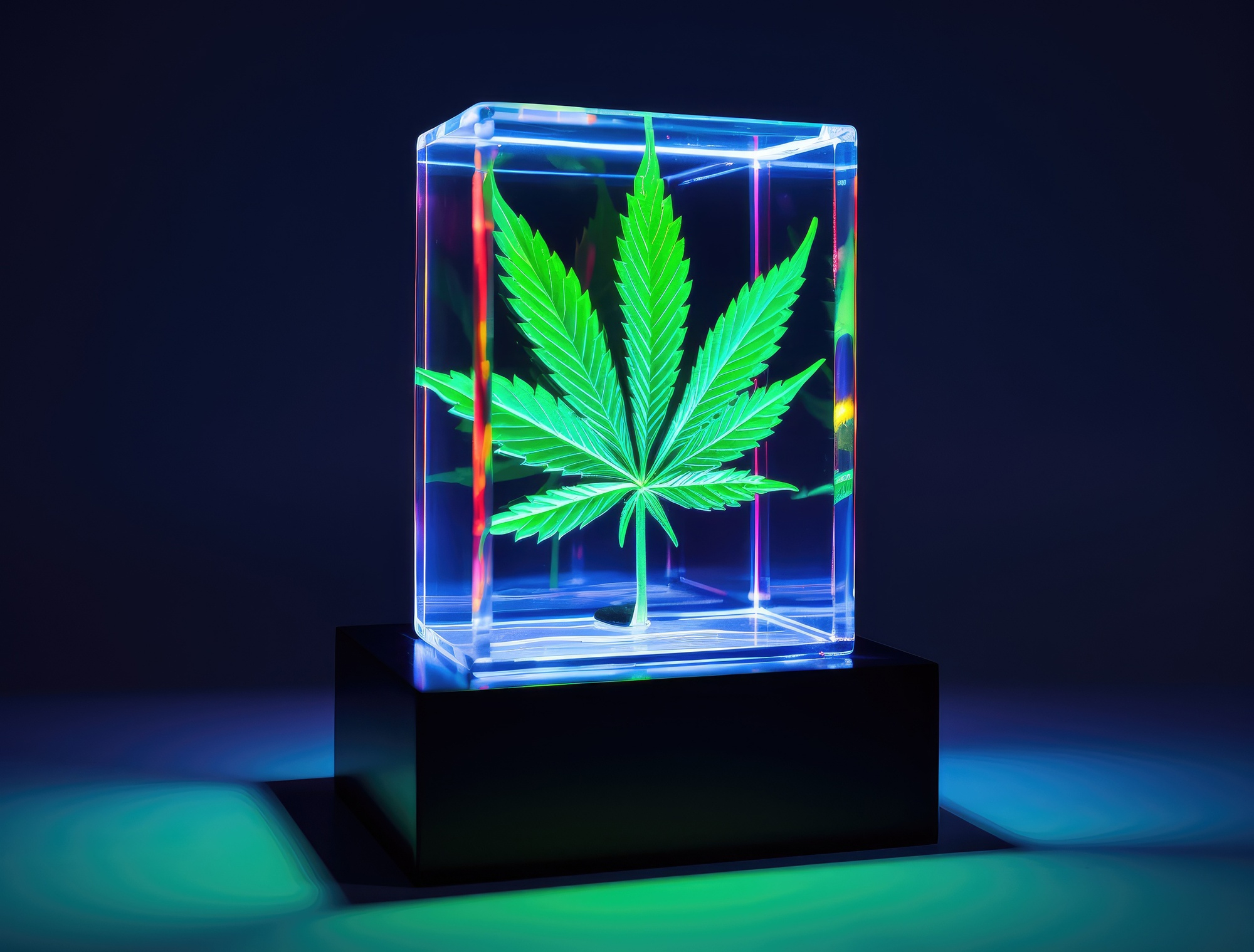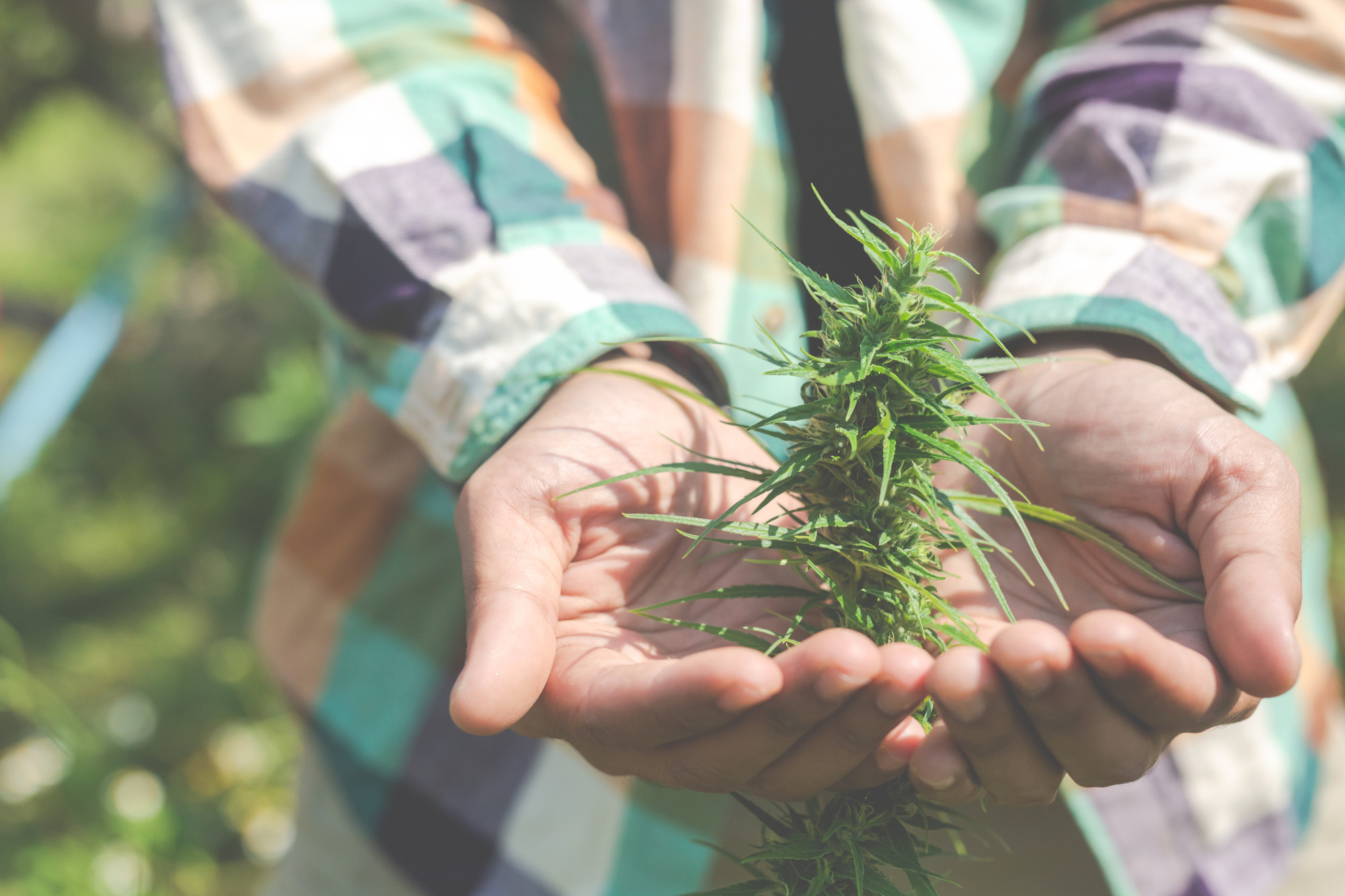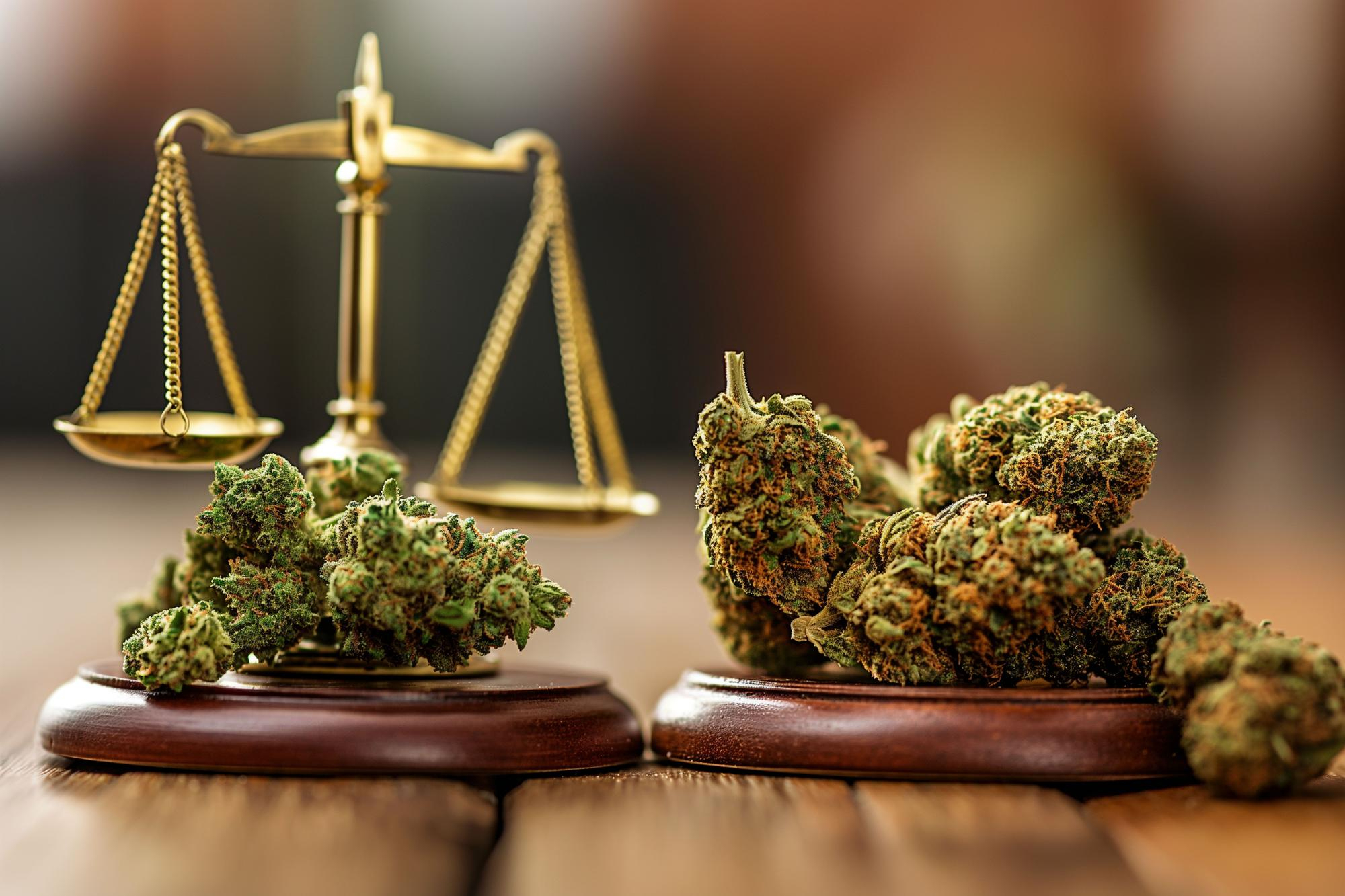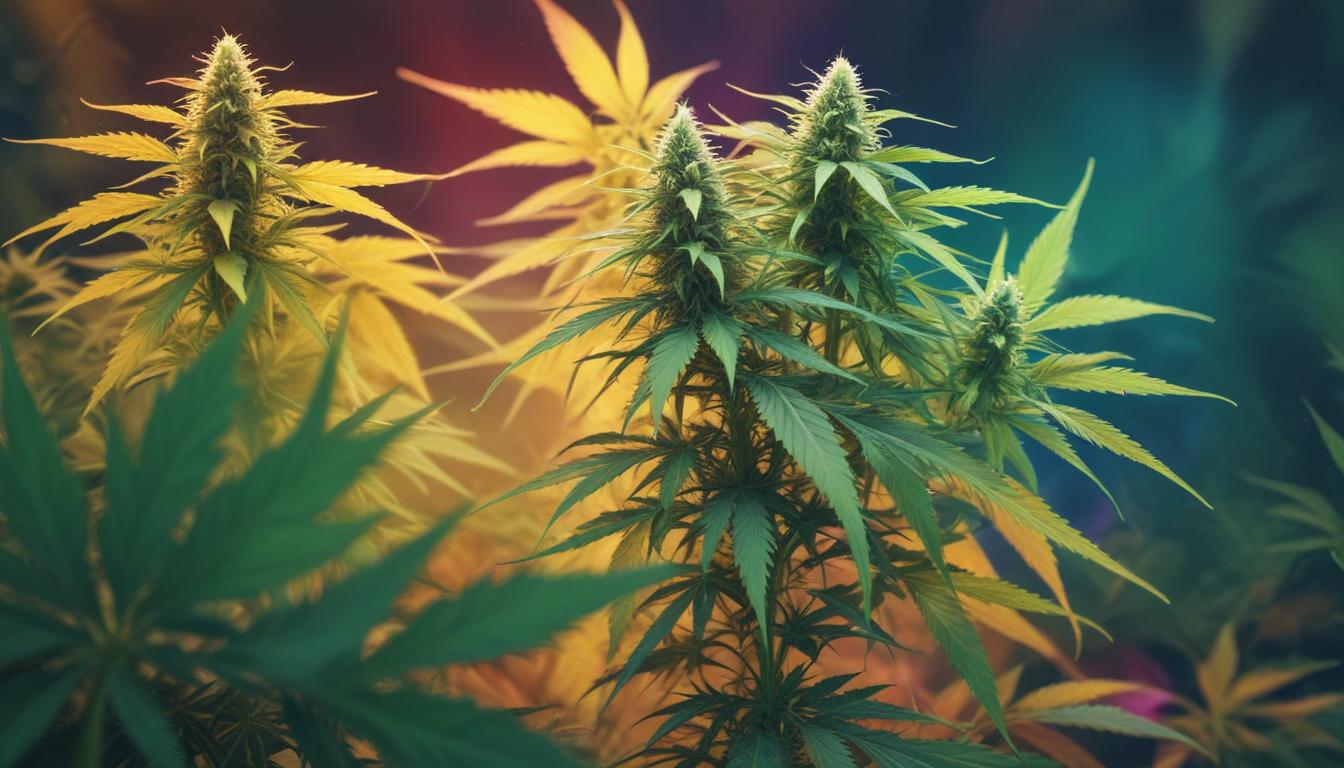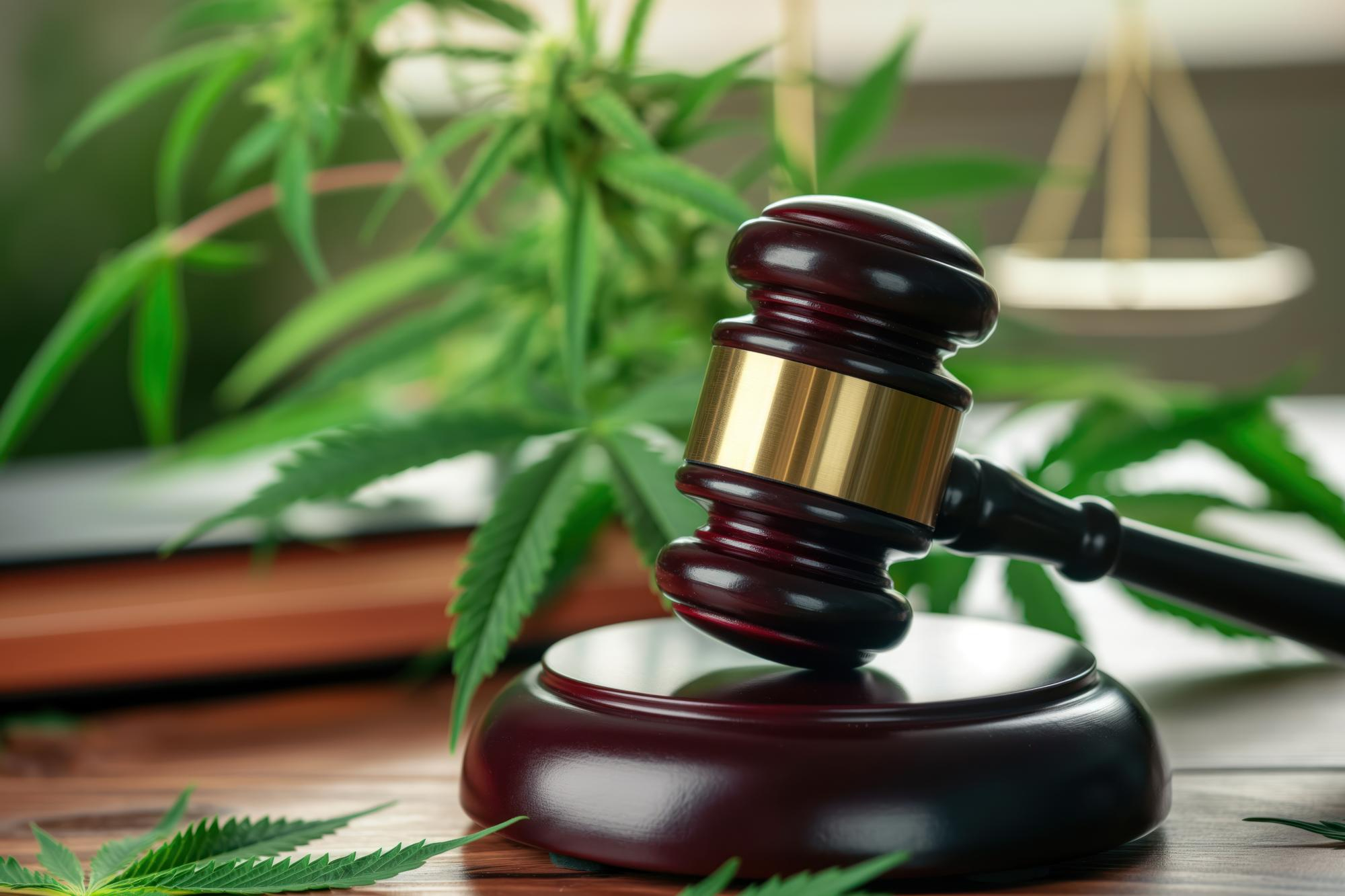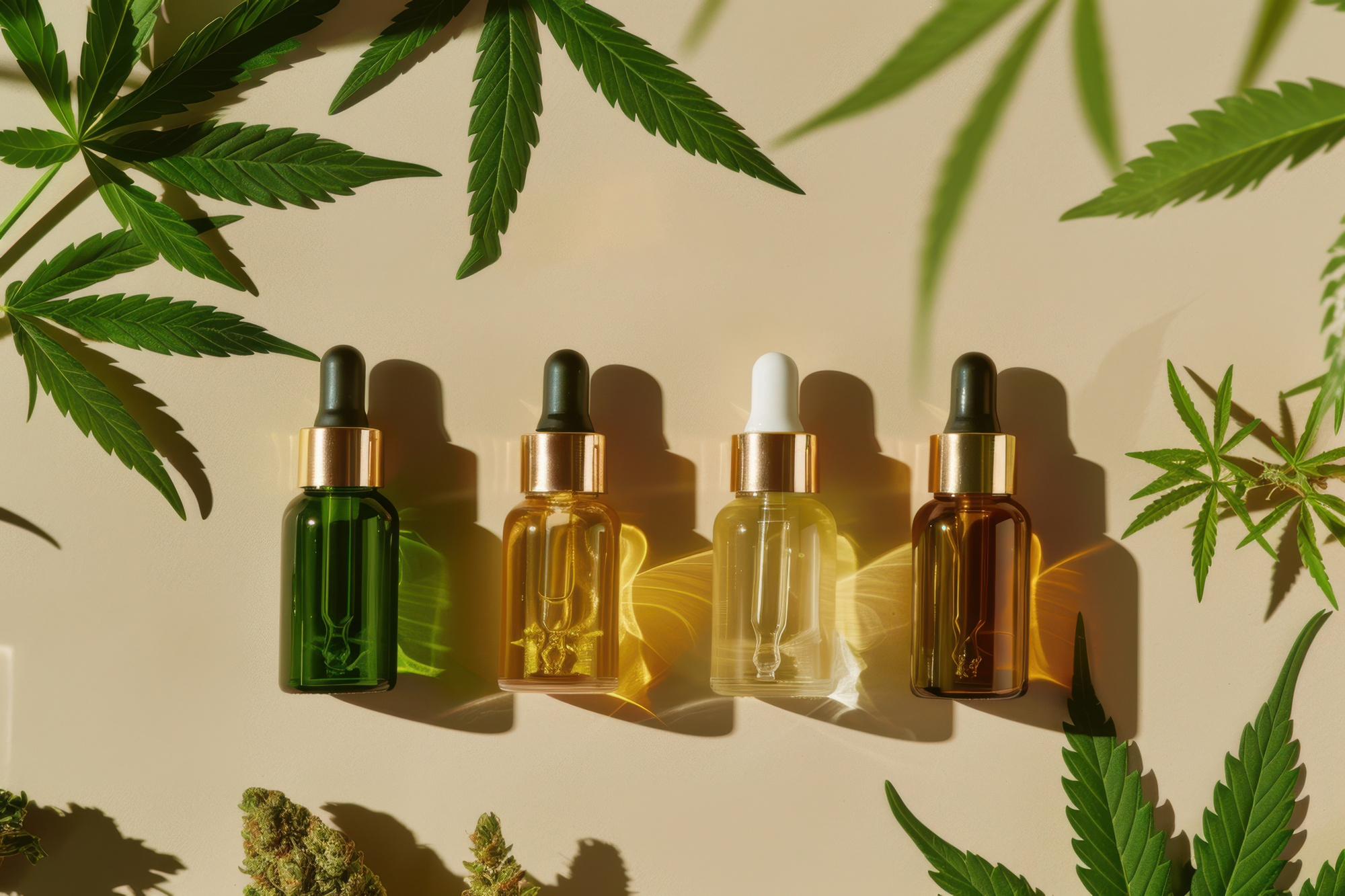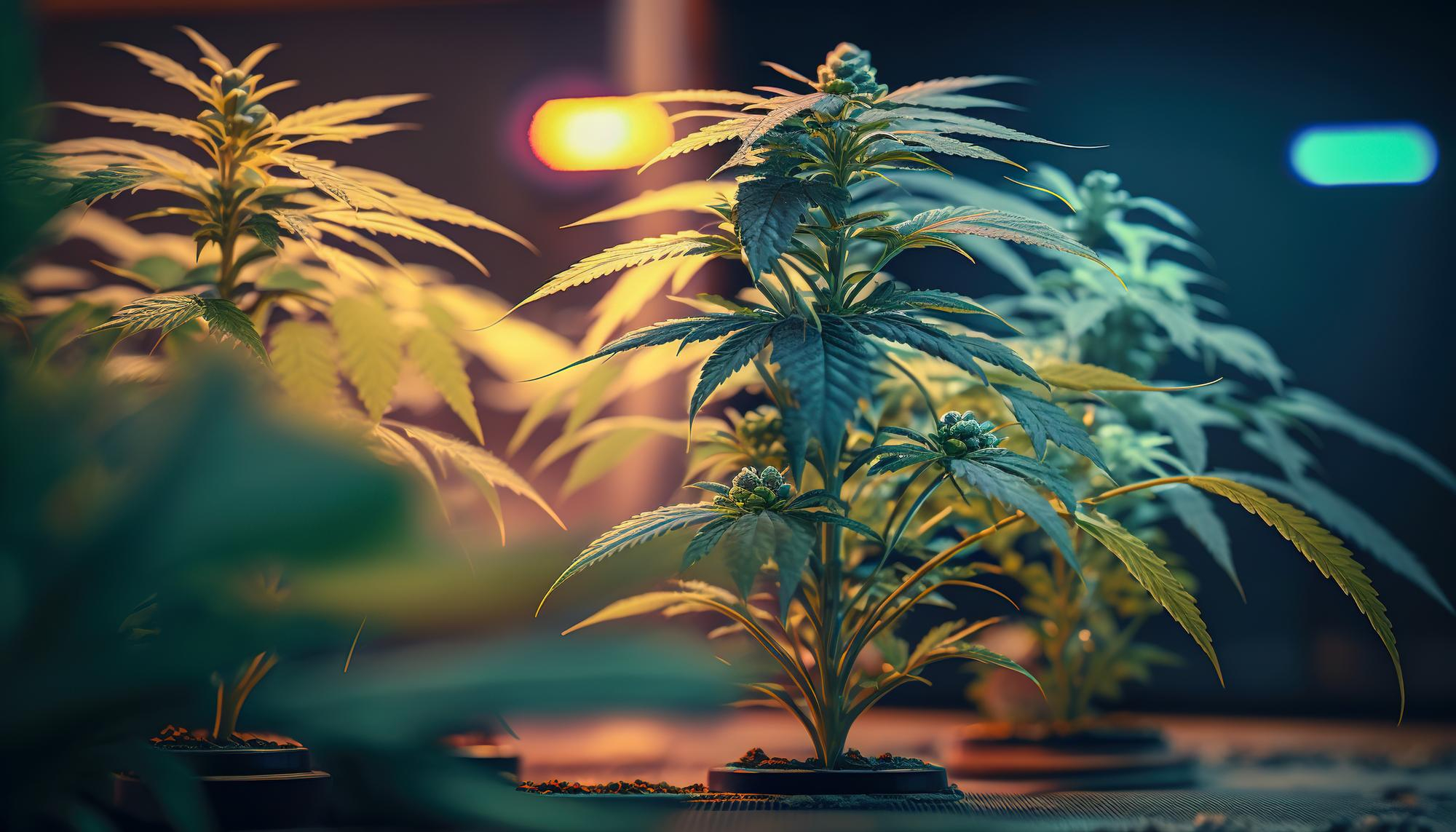Category: THCA
Can You Smoke THCA In Public?
THCA flower is gaining popularity in the cannabis world, but questions about its legal use in public remain. Unlike THC, THCA itself is non-psychoactive until exposed to heat, which converts it into THC. This raises an interesting question: can you smoke THCA in public without breaking the law? While the 2018 Farm Bill legalized hemp-derived THCA products containing less than 0.3% delta-9 THC, public consumption laws vary depending on your location.
Understanding the legal landscape for THCA is essential if you want to avoid legal issues. This guide explores whether smoking THCA flower in public is within legal limits. We’ll break down the differences between federal and state laws, discuss the risks, and help you navigate the legal boundaries surrounding THCA flower use in public spaces.
What is THCA Flower?
THCA, or tetrahydrocannabinolic acid, is a cannabinoid found in raw and live cannabis plants. Unlike THC, which is the psychoactive component in cannabis, THCA itself is non-psychoactive until exposed to heat. When you smoke or vape THCA flower, the heat converts THCA into THC through a process called decarboxylation, allowing you to experience its effects.
Under the 2018 Farm Bill, hemp-derived THCA flower is legal as long as it contains less than 0.3% delta-9 THC. This legal framework allows the sale and use of THCA products as long as they stay within the legal THC limit. However, the legality of smoking THCA in public is more complicated due to varying state and local regulations.
Because THCA flower is derived from hemp, it is considered a legal hemp product. Still, this legality doesn’t automatically apply to public use. Understanding the nuances is essential for anyone who plans to smoke THCA in public spaces.
Federal vs. State Laws on Smoking THCA
While the 2018 Farm Bill legalized hemp-derived products, including THCA flower. Individual states have their own cannabis laws. Under federal law, THCA flower is legal as long as it contains less than 0.3% delta-9 THC. However, this doesn’t automatically mean you can smoke THCA flower in public everywhere.
Each state has the authority to regulate the public use of hemp-derived products, including THCA. Some states allow more freedom when it comes to smoking cannabis-like products in public, while others are much stricter. For example, states like California and Oregon, which have more relaxed cannabis laws, may be more lenient on public consumption. On the other hand, states like Texas or Idaho, where cannabis is heavily restricted, may prohibit public use of THCA, even if it’s technically legal.
While THCA flower is federally legal, state and local laws may still restrict where and how you can use it.
Risks of Smoking THCA in Public
Smoking THCA flower in public comes with several risks, especially since the line between legal and illegal cannabis use can be blurry. While THCA flower itself is federally legal, public perception and law enforcement can complicate things. If authorities catch you smoking THCA in public, it might resemble THC-heavy cannabis, and most people—including police officers—won’t distinguish it by sight or smell.
One major risk is that law enforcement may assume you’re smoking illegal marijuana. Even though THCA flower contains less than 0.3 % delta-9 THC, it can still look and smell like regular cannabis. Without testing, officers won’t know that what you’re smoking is within legal limits. This misunderstanding can lead to fines, citations, or in some cases, arrest. You may face charges of possession of marijuana, even if your THCA product is legal under federal law.
Another risk comes from smoking in smoke-free zones. Many cities and states prohibit smoking anything—whether it’s tobacco, hemp, or cannabis—in designated areas.. If authorities catch you smoking THCA flower in these areas, you could face penalties for violating local smoking laws, even if your product is legally compliant.
Public perception is also a risk. Even if you’re within your rights to smoke THCA flower, bystanders may mistake it for marijuana, leading to uncomfortable or confrontational situations. This risk is especially high in areas where cannabis use remains stigmatized or illegal.
Given these risks, it’s important to understand the legal landscape and how public use of THCA flower could be misinterpreted. While THCA flower is legal, smoking it in public often presents more legal complications than consuming it in private.
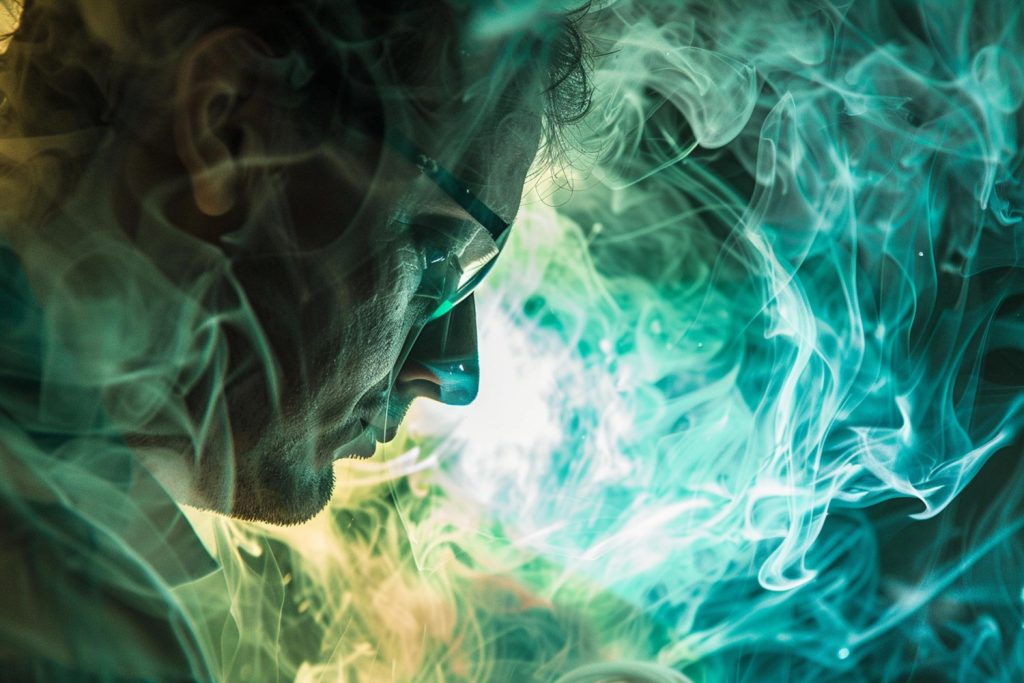
What Happens If You’re Caught Smoking THCA in Public?
If authorities catch you smoking THCA flower in public, the outcome depends on factors like your location and law enforcement’s familiarity with hemp-derived product legality. Since THCA flower looks and smells like regular cannabis, authorities might not immediately recognize that you’re within legal limits. Thats why we do not reccomend to smoke THCA in public places.
In some cases, you could receive a citation or fine for public consumption, regardless of whether the product is legal. Many states and municipalities have laws that prohibit smoking any substance. If authorities catch you smoking in a restricted public place, you could face penalties for violating local smoking laws, even if you’re using a legal product.
If law enforcement suspects you’re smoking marijuana instead of THCA flower, they may ask you to prove the product is hemp-derived and contains less than 0.3% delta-9 THC, which makes it legal. This is where documentation, such as certificates of analysis (COAs) from third-party lab testing, becomes crucial. Carrying proof that your THCA flower is legal can help avoid misunderstandings or legal consequences. Without this documentation, you might face charges until lab testing can confirm the product’s legality.
In more conservative states with stricter cannabis laws, authorities could charge you with legal trouble for possessing THCA flower. Some jurisdictions don’t fully recognize the difference between hemp-derived THCA and marijuana. This highlights the importance of understanding local cannabis laws before carrying or using THCA flower in public.
If you’re caught smoking THCA in public, you could face fines, citations, or even arrest, depending on the circumstances. To avoid legal trouble, it’s important to stay informed about local laws and always have proof of your product’s legality.
THCA Flower and Drug Tests
One important consideration when using THCA flower, especially in public, is how it could affect drug tests. While THCA itself is non-psychoactive, it converts to THC when exposed to heat. This conversion can result in THC showing up in your system. Even though THCA flower is legal under the 2018 Farm Bill, drug tests don’t differentiate between legal hemp-derived THCA and marijuana-derived THC.
Many workplaces, schools, and government agencies still test for THC, not THCA. Since THCA flower turns into THC when smoked or vaped, it’s likely to trigger a positive drug test, even if the product is legal. This is especially relevant if you are subject to random drug screenings or work in an industry where drug testing is common.
If you’re in a situation where drug testing is a concern, it’s important to consider how public use of THCA flower could affect the outcome. While smoking THCA in public may be legal, the risk of testing positive for THC could lead to consequences in work or other aspects of life. If you’re subject to drug testing, you may want to opt for products that won’t lead to a positive test, like CBD-only products that don’t convert to THC.
In short, using THCA flower in public may have legal ramifications beyond just local smoking laws. The risk of a positive drug test could complicate your situation, even if you’re staying within legal THC limits. Keep this in mind if you’re considering smoking THCA in a public setting where drug testing might be a factor.
If You’re Still Wondering If You Can Smoke THCA In Public…
THCA flower provides an exciting way to enjoy cannabis benefits without the typical high, unless you exposed to heat. While THCA flower is federally legal under the 2018 Farm Bill, its public use raises more complicated questions. Smoking THCA in public can lead to legal risks, as law enforcement may not be able to distinguish between legal hemp-derived THCA and illegal THC-rich cannabis. The confusion over legal status, the potential for mistaken identity, and local regulations make public smoking of THCA flower a tricky situation.
Understanding the legal landscape surrounding THCA is crucial to avoid unnecessary trouble.
People sometimes assume all cannabis-related products are treated equally however public consumption laws handle them differently.
To stay within legal limits, research your state’s cannabis laws, carry proof of your THCA flower’s legality. Avoid smoking in prohibited public spaces.
By following best practices, such as consuming THCA flower in private spaces or opting for alternative methods like vaporizing or edibles, you can enjoy your THCA products without fear of legal repercussions. Always carry proof of your flower’s legality and stay informed about local laws to avoid misunderstandings.
As THCA continues to grow in popularity, the legal landscape may evolve. It’s crucial to stay informed and cautious when using THCA in public. By understanding the current regulations you can continue to enjoy the benefits of THCA flower while staying within legal boundaries.
Best Exotic THCA Flower Strains
The world of THCA flower is constantly expanding, with more people diving into the nuances of different strains. One category that has been getting a lot of attention is exotic THCA flower. These unique strains offer a distinct experience that’s unlike your standard THCA hemp flower. But what exactly makes a strain “exotic,” and why are these buds so sought after? From rare genetics to exclusive flavors, exotic strains are a must-try for cannabis connoisseurs.
While THCA is the precursor to THC, exotic strains stand out with their complex terpene profiles and potency. Whether you’re looking for something unique to smoke or just want to explore new highs, exotic THCA flower can bring an exciting twist to your cannabis routine. Let’s dive into what sets these strains apart and explore some of the best exotic THCA flower available.
What Are Exotic THCA Strains?
Exotic THCA strains aren’t just your average buds. These strains come from rare genetics, often featuring unique flavors, vibrant colors, and high levels of THCA. When we say “exotic,” we’re talking about cannabis plants that stand out from the crowd—whether it’s their unusual terpene profiles or the special growing conditions required to cultivate them.
The big difference between exotic and standard strains lies in their rarity and potency. Standard strains might be easier to grow and find, but exotic THCA flower is all about the hunt for the most flavorful and potent buds. Plus, these strains often showcase a level of refinement that seasoned cannabis users crave. Exotic THCA flower can contain high levels of cannabinoids and terpenes, giving users an elevated experience.
So, why choose exotic strains? Well, for one, they offer a richer sensory experience. From the moment you open the jar, the bold scents and colors of exotic THCA flower grab your attention. And because these strains are harder to come by, they tend to carry a level of exclusivity that many people enjoy. If you’re looking to shop THCA flower online, be on the lookout for these special varieties that promise an exceptional high.
Benefits of Exotic THCA Strains
Exotic THCA strains bring more to the table than just rare genetics—they offer a premium cannabis experience. These hemp buds are known for their distinct terpene profiles, making each strain flavorful and aromatic. Whether you’re into fruity, gassy, or earthy flavors, exotic strains provide something unique to enjoy.
Another benefit is the potency. Exotic THCA flower often contains high levels of THCA, leading to a more intense experience once it’s heated and converted into THC. This makes it ideal for those looking for a powerful effect, whether you’re into pre-rolls, smoking flower, or vaporizing. Exotic strains typically have a higher concentration of cannabinoids, delivering a stronger, more enjoyable high.
For cannabis enthusiasts who appreciate the finer details, exotic strains also offer visual appeal. These buds tend to be colorful and covered in frosty trichomes, signaling their potency and freshness. And because these strains are usually harder to find, there’s a certain exclusivity in adding them to your stash. Plus, since exotic THCA flower is federally legal under the 2018 Farm Bill, you can buy THCA flower online without worry, as long as it contains less than 0.3 % delta 9 THC.
Popular Exotic THCA Flower Strains to Try
Trop Cherry
Trop Cherry is a slightly Sativa-dominant hybrid known for its bold tangerine and cherry flavors. This strain offers a smooth, balanced high with a burst of creativity, making it perfect for daytime use. With its fruity terpene profile, it’s one of the best THCA flower options for those who enjoy sweet, uplifting strains. Which makes this a popular choice with consumers.
Illemonati
For citrus lovers, Illemonati is a standout exotic strain. This Sativa-dominant hybrid has a strong lemon aroma, thanks to its high limonene content. It brings uplifting effects and is ideal for those who want to stay energized throughout the day. These characteristics make it a great exotic THCA flower.
Gush Mintz
Gush Mintz is an Indica-dominant hybrid that delivers a sedative, couch-lock effect. With gassy flavors and hints of mint and pine, this strain is perfect for evening use or winding down after a long day. Its potent THCA levels and rich flavor make it a favorite among exotic strains.
White Widow
A true classic with exotic appeal, White Widow is a slightly Sativa-dominant hybrid. It features citrusy notes with a peppery finish, offering a refreshing yet spicy taste. This strain is famous for its high potency and balanced effects, providing both mental clarity and physical relaxation.
Ice Cream Cake
Indica lovers will enjoy Ice Cream Cake, with its creamy vanilla and buttery flavors. This strain is perfect for those seeking a smooth, calming high. Its dense buds and frosty appearance make it visually stunning, while its relaxing effects make it a popular choice for nighttime use.

How to Choose the Best Strain for You
- Effects:
Decide if you want an energetic, uplifting experience or a relaxing, calming high. Indica strains tend to relax, while Sativas offer more energy. - Terpene Profile:
Choose based on flavor preferences. Fruity lovers might go for Trop Cherry or Illemonati, while those preferring earthy or gassy notes may enjoy Gush Mintz. - Potency:
Exotic strains often have higher THCA levels. If you’re new to potent strains, start with smaller amounts to gauge your tolerance. - Source & Testing:
Always buy THCA flower from trusted sources that provide third-party lab results. This ensures you’re getting premium THCA flower that complies with the 2018 Farm Bill and contains less than 0.3% delta 9 THC.
Where to Buy Exotic Strains
When you’re ready to buy THCA flower, especially exotic strains, it’s essential to know where to look. Not all retailers offer high-quality, premium THCA flower, so shopping from trusted sources is key. Online retailers that specialize in hemp-derived THCA products often have the best selection of exotic strains. Websites like Area 52 and Finest Labs offer a wide range of high THCA flower that meets federal regulations.
Before making a purchase, always check for third-party lab testing. This ensures the THCA flower you’re buying contains less than 0.3% delta 9 THC, making it federally legal under the 2018 Farm Bill. Reputable retailers will clearly display lab results so you can verify the potency and purity of the strain.
Additionally, pay attention to packaging and storage recommendations. THCA flower should be kept in an airtight container in a cool, dark place to maintain its potency and flavor. When buying online, make sure the retailer offers proper packaging to preserve the freshness of your exotic buds during shipping. With the right source, you’ll enjoy the full benefits of high-quality exotic THCA strains.
The Exciting World of Exotic Strains
Exotic THCA strains offer an exciting and unique experience for cannabis enthusiasts who want to explore beyond the usual buds. With their rare genetics, potent THCA levels, and rich terpene profiles, these strains bring a whole new level of enjoyment to your cannabis routine. Whether you’re into fruity flavors, earthy aromas, or high-powered effects, there’s an exotic strain out there for you.
As long as your THCA flower contains less than 0.3% delta 9 THC, it’s federally legal to buy and enjoy under the 2018 Farm Bill. Be sure to shop from trusted retailers that provide third-party lab testing, and store your exotic buds properly to keep them fresh and potent. With the right exotic THCA strains in your stash, you’ll be able to elevate your cannabis experience to new heights.
Is THCA Natural or Synthetic?
THCA, or tetrahydrocannabinolic acid, has taken the cannabis market by storm, raising some interesting questions. One of the most common questions is whether THCA is natural or synthetic. As more consumers explore THCA flower and other high-THCA products, understanding where this cannabinoid comes from and how it works is essential. THCA is the precursor to THC, but does that mean it’s natural? And how does it differ from synthetic cannabinoids?
In this article, we’ll dive deep into the world of THCA to answer the question: is THCA natural or synthetic? We’ll explore how THCA is produced, how it transforms into THC, and why knowing the difference matters in the cannabis industry. Whether you’re a seasoned cannabis enthusiast or just getting into THCA products, this guide will help clarify the origins of THCA and why it’s gaining so much attention.
What is THCA?
THCA, or tetrahydrocannabinolic acid, is a naturally occurring cannabinoid found in raw cannabis plants, including hemp flower and marijuana. Unlike THC, the psychoactive compound associated with getting high, THCA is non-psychoactive in its raw form. However, heating THCA through a process called decarboxylation converts it to THC, creating psychoactive effects.
Fresh cannabis buds often contain high levels of THCA before they are exposed to heat. As a precursor to THC, it plays a key role in the cannabis plant’s chemical makeup. When you consume THCA itself won’t produce psychoactive effects, it easily transforms into THC when smoked, vaped, or used in high-heat processes like cooking.
With increasing interest in non-psychoactive cannabinoids, THCA products, including THCA flower and concentrates, have become popular. People appreciate THCA for its natural presence in cannabis and its potential once decarboxylated into THC.
Is THCA Naturally Occurring?
Yes, THCA is a naturally occurring cannabinoid found in raw cannabis plants, including both marijuana and hemp. THCA forms as part of the plant’s natural growth process through biosynthesis. In this process, an enzyme converts cannabigerolic acid (CBGA), also known as the “mother of all cannabinoids,” into THCA and other cannabinoids. The cannabis plant produces THCA in its highest concentration before exposure to heat.
Unlike THC, which is a psychoactive compound, THCA remains non-psychoactive in its natural form. This transformation gives cannabis its psychoactive effects, but THCA itself is naturally found in raw cannabis buds. The conversion of THCA into THC occurs only when people heat cannabis through smoking, vaporizing, or cooking.
THCA-rich hemp flower is becoming a sought-after product in the cannabis industry, especially for those looking for a non-psychoactive experience with the potential to convert into THC. People do not consider THCA a synthetic compound because the plant naturally produces it..
What Does Synthetic Mean in the Context of Cannabinoids?
When we talk about synthetic cannabinoids, we’re referring to compounds created in a lab to mimic the effects of naturally occurring cannabinoids like THC or CBD. Instead of coming from the cannabis plant, synthetic cannabinoids are designed to activate the same receptors in the body as natural cannabinoids. Chemists chemically engineer synthetic cannabinoids, unlike natural cannabinoids. Examples of synthetic cannabinoids include substances like Spice or K2, which are illegal in many countries due to their unpredictable effects.
People often see these natural products as safer and more authentic. The difference between synthetic and natural cannabinoids (like THCA) is important because consumers tend to prefer products derived directly from the plant. Raw cannabis plants do not contain synthetic cannabinoids, which often come with health risks and legal issues.
This derivation is why people consider THCA a natural compound, especially in the world of THCA flower and other hemp-derived products. While laboratories sometimes synthesize cannabinoids like delta-8 THC, producers typically derive THCA from cannabis plants, not make it in a lab. In the context of THCA, using the term “synthetic” implies artificial creation rather than extraction from cannabis plants.

Is THCA Ever Made Synthetically?
While it’s possible to create THCA synthetically in a lab, it’s not a common practice. THCA is natural in high levels in cannabis plants, making synthetic production unnecessary for most uses. Cannabis growers can easily cultivate hemp flower or marijuana rich in THCA, which simplifies the process of extracting it directly from the plant.
Producers often create synthetic cannabinoids like delta-8 THC due to their scarcity in the natural cannabis plant. However, THCA is abundant in raw cannabis buds, eliminating the need for lab creation. Most THCA products on the market, such as THCA flower and concentrates, come from natural cannabis cultivation and extraction processes.
Researchers and pharmaceutical professionals might produce synthetic THCA for controlled experiments, but it is not widely available in commercial cannabis products. Consumers seeking to buy high-THCA products should look for naturally derived options, as they are the most common and widely trusted in the cannabis industry.
Benefits of Natural THCA vs. Synthetic Cannabinoids
Natural THCA, derived from raw cannabis plants, has become the preferred choice for most consumers. People prefer natural THCA mainly because it is found directly in cannabis buds without any chemical alterations or synthetic processing. This allows for a more authentic experience, especially for cannabis enthusiasts seeking whole-plant products.
Laboratories create synthetic cannabinoids to mimic the effects of natural cannabinoids like THC. However, synthetic cannabinoids often come with risks. Products like Spice or K2 have caused dangerous side effects due to their unstable and unpredictable nature. Consumers looking for a reliable, safe experience typically avoid synthetic in favor of natural THCA products.
Another benefit of natural THCA is its connection to the full spectrum of cannabinoids found in cannabis plants. When users consume natural THCA, they also benefit from the plant’s terpenes and other cannabinoids. These can enhance the overall experience through the entourage effect.This is something synthetic cannabinoids cannot replicate.
In short, natural THCA offers a safer, more comprehensive experience, making it the preferred option over synthetic cannabinoids.
How to Ensure Your THCA is Natural
As demand for THCA products grows, consumers find it increasingly important to ensure their products are naturally derived. Thankfully, there are several ways to confirm that your THCA flower or concentrate is natural and not synthetic.
First, look for third-party lab testing. Reputable brands provide certificates of analysis (COAs) that verify the cannabinoid content of their products. These tests will show the levels of THCA, THC, and other cannabinoids, giving you confidence that the product comes from raw cannabis and not a lab. Without these tests, it’s hard to guarantee the purity and natural origin of the THCA.
Next, pay attention to product labels. Labels on THCA hemp flower should clearly state that it’s derived from hemp. This ensures that the THCA content comes from natural cannabis plants. Many brands take pride in offering “full-spectrum” or “whole-plant” products, which means they contain a wide range of cannabinoids and terpenes, all from natural sources.
Finally, choose trusted sources for your THCA products. Buy from reputable dispensaries or online retailers known for their high-quality, naturally derived cannabis products. By purchasing from reliable brands, you ensure your THCA is natural and not synthetic.
By following these tips, you can be confident that the THCA you’re consuming is natural and sourced from real cannabis plants.
Why the Debate Over Natural vs. Synthetic Matters
The debate over whether THCA is natural or synthetic reflects larger trends in the cannabis industry. As the demand for cannabis products grows, consumers increasingly focus on transparency, purity, and authenticity. People consider naturally derived cannabinoids, including THCA, as safer and more reliable options because they come directly from the cannabis plant. This preference for natural over synthetic cannabinoids drives much of the current market demand.
Lab creation of synthetic cannabinoids, like delta-8 THC, raises concerns due to their sometimes unpredictable nature. Although they mimic natural cannabinoids, synthetic versions often lack the cannabinoids and terpenes that naturally occur in cannabis. This absence means synthetic cannabinoids don’t offer the same benefits associated with the entourage effect, where all the compounds in cannabis work together to produce more balanced and enhanced effects.
From a legal standpoint, the natural versus synthetic debate also matters. Many states and countries regulate synthetic cannabinoids differently than naturally derived ones. The 2018 Farm Bill legalizes natural THCA products, such as hemp flower, as long as they contain less than 0.3% delta-9 THC. Synthetic cannabinoids may exist in a gray legal area or face outright bans. This difference influences how various legal markets sell and consume products.
Ultimately, the debate underscores why it’s essential for consumers to understand the origin of their THCA products. The preference for natural, full-spectrum cannabis products will likely continue to shape the future of the industry. Consumers will seek more transparency and quality in their purchases.
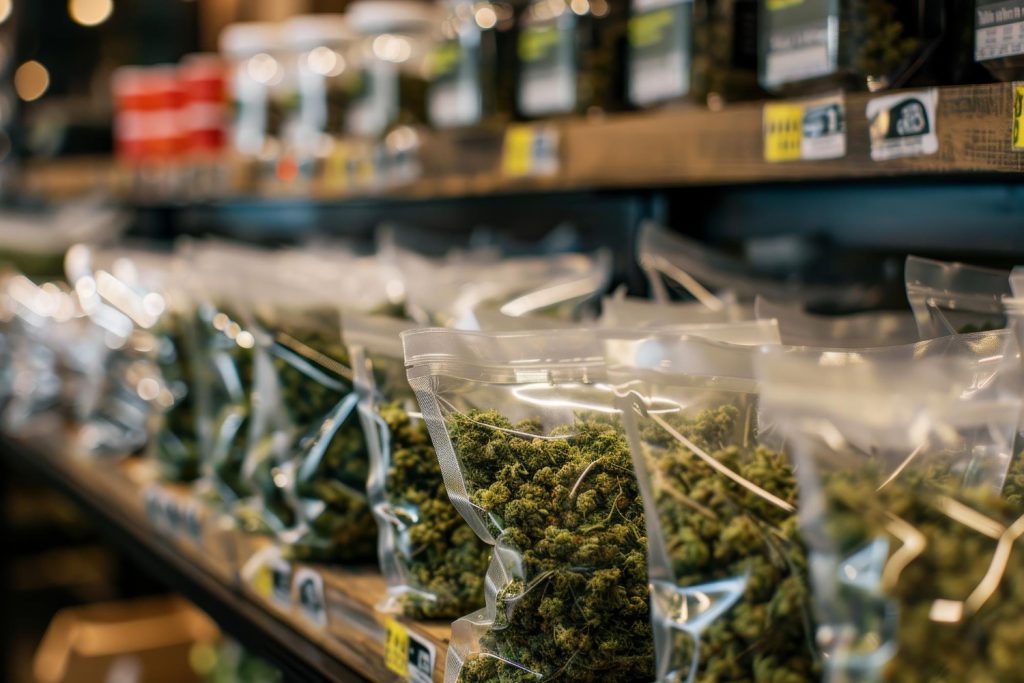
Understanding Naturally Occurring vs. Synthetic Cannabinoids
THCA is a naturally occurring cannabinoid found in raw cannabis plants, including hemp and marijuana. Although labs can create synthetic cannabinoids, cannabis plants most commonly produce THCA, making it a natural compound. Consumers prefer natural THCA products because they offer the full spectrum of cannabinoids and terpenes. This leads to a more balanced and authentic experience compared to synthetic alternatives.
Understanding the difference between natural and synthetic cannabinoids is crucial in today’s cannabis market. As the industry grows, consumers are placing more value on transparency, safety, and quality. Naturally derived THCA products, like THCA flower and concentrates, meet this demand, offering a legal, safe, and enjoyable way to consume cannabis. While synthetic cannabinoids exist, natural THCA remains the top choice for those who want to enjoy the full benefits of cannabis.
The world of THCA continues to grow, and as more consumers explore this non-psychoactive cannabinoid, understanding its origins will help guide better, more informed decisions.
What Does THCA Mean?
THCA, or tetrahydrocannabinolic acid, is becoming a popular topic in the cannabis world. Many cannabis enthusiasts are familiar with THC, the compound responsible for the psychoactive effects that “get you high.” However, THCA is different. Found in raw cannabis, THCA is the non-psychoactive precursor to THC. This means that while THCA doesn’t produce intoxicating effects on its own, it transforms into THC when exposed to heat.
Understanding THCA and how it differs from THC is essential, especially as more consumers look for non-psychoactive cannabis products. In this guide, we’ll dive into what THCA means and how it relates to THC. Let’s explore everything you need to know about THCA and its role in the cannabis industry.
What is THCA?
THCA stands for tetrahydrocannabinolic acid, a cannabinoid found in raw cannabis plants. Unlike THC, THCA is a non-psychoactive compound, meaning it doesn’t get you high. THCA is present in cannabis before the plant is exposed to heat. Once heated, it goes through a process called decarboxylation, which converts THCA into THC. THC is the psychoactive compound responsible for marijuana’s intoxicating effects.
THCA is commonly found in raw cannabis buds and fresh cannabis extracts. As a precursor to THC, it is essential in understanding the life cycle of the cannabis plant. While THCA itself won’t produce psychoactive effects when consumed, it’s the starting point for creating THC, the cannabinoid most associated with marijuana use.
How THCA Converts to THC
THCA turns into THC when it’s exposed to heat through a process called decarboxylation. This transformation happens when you smoke, vape, or cook with cannabis. THCA, in its raw form, has a carboxyl group attached to its molecular structure. When heated, this carboxyl group is removed, converting THCA into delta-9 THC, the compound responsible for marijuana’s psychoactive effects.
This conversion is why raw cannabis doesn’t get you high. Instead, it’s the heating process that activates THCA, transforming it into the THC that produces psychoactive effects. Without decarboxylation, consuming raw cannabis or THCA products will not produce the same “high” as consuming THC-rich products.
This process is what makes THCA unique from THC—while they’re chemically related, they produce very different effects depending on how the cannabis is consumed.
Differences Between THCA and THC
Though THCA and THC share a close relationship, they are quite different in terms of their effects and uses. THCA is a non-psychoactive compound, meaning it does not produce the intoxicating effects typically associated with marijuana. In contrast, THC is the cannabinoid responsible for the “high” people experience during marijuana use.
The key difference between THCA and THC is decarboxylation, the process that converts THCA into THC when exposed to heat. Raw cannabis contains THCA, while products that have been heated, such as joints, vapes, and edibles, contain THC. Cannabis products that focus on the raw benefits of the plant often feature THCA. Products made for their psychoactive effects typically contain THC.
Additionally, the legal status of THCA and THC varies. Under the 2018 Farm Bill, hemp-derived products containing less than 0.3% delta-9 THC are federally legal. However, THC-heavy cannabis remains illegal in many states, unless for medical or recreational purposes.
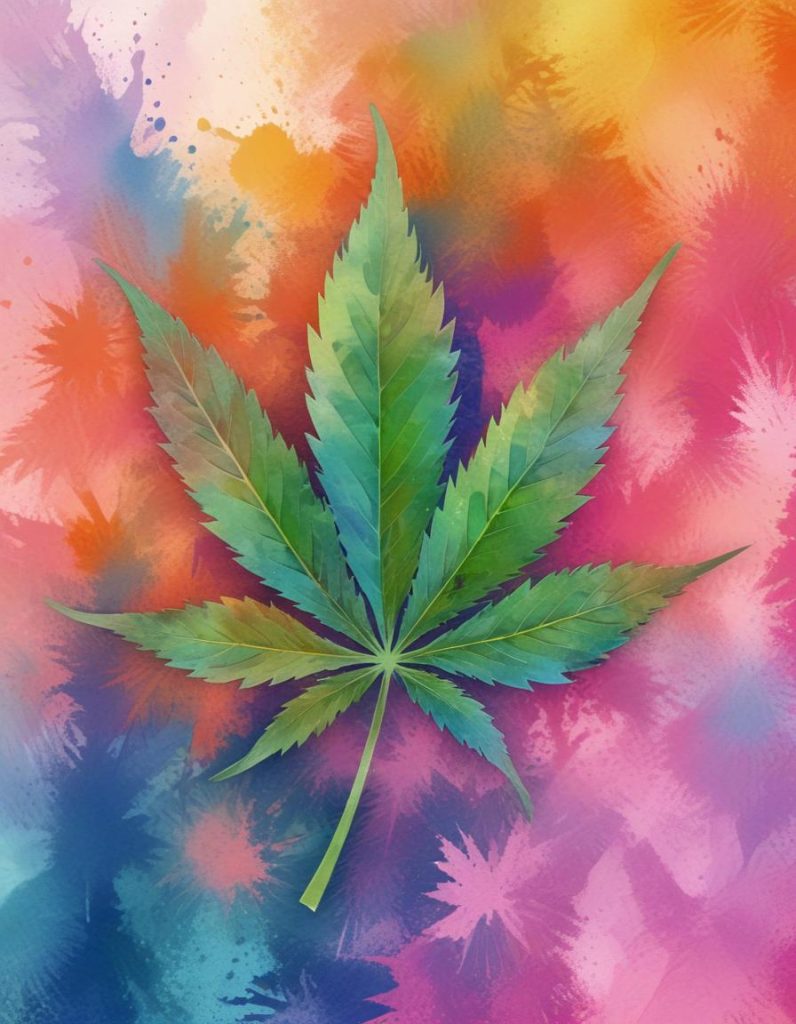
Benefits of THCA
While THCA doesn’t produce the psychoactive effects of THC, it still offers various potential benefits. THCA products, such as raw cannabis or extracts, are becoming more popular for those seeking to experience cannabis without getting high. Consuming raw cannabis in the form of smoothies, juices, or tinctures is one way to enjoy THCA without converting it into THC.
THCA may offer non-psychoactive benefits, making it appealing for those who want to avoid the intoxicating effects of THC. THCA also fits into the wider cannabinoid family. It works alongside other cannabinoids like CBD and CBG, but with its own unique properties. The cannabis industry continues to explore ways to use THCA in products that offer users alternative experiences compared to traditional THC products.
Although research into THCA is still growing, its non-psychoactive nature allows for more versatile use without concerns over producing a high. This is why THCA products, such as raw flower and extracts, are gaining attention from both consumers and the cannabis industry
How to Use THCA Products
You can consume THCA in various ways. Your chosen method of consumption determines whether THCA stays non-psychoactive or converts into THC. If you want to experience the benefits of THCA without turning it into THC, you’ll need to use raw cannabis products. This includes fresh cannabis leaves, raw cannabis extracts, or even THCA tinctures that haven’t been exposed to heat.
One popular way to consume THCA is through juicing or blending raw cannabis into smoothies. This preserves the THCA molecules and prevents them from converting into THC. Edibles that don’t involve heat, such as raw cannabis-infused oils or capsules, are also effective ways to consume THCA without the psychoactive effects.
For those who want to experience both THCA and THC, smoking, vaping, or cooking with cannabis will convert THCA into THC, resulting in psychoactive effects. The key is understanding how heat transforms THCA and choosing your method of consumption accordingly.
THCA vs. Other Cannabinoids
THCA is part of a larger family of cannabinoids found in the cannabis plant. It’s important to understand how it compares to other well-known cannabinoids like CBD, CBG, and Delta-8 THC. Each cannabinoid offers unique properties and effects, making them suitable for different uses.
- THCA vs. CBD: While both are non-psychoactive, CBD remains stable and doesn’t convert to THC when exposed to heat. THCA, on the other hand, converts to THC through decarboxylation, making it a precursor to psychoactive effects.
Both THCA and other cannabinoids like CBG or Delta-8 THC are gaining popularity, but they serve different purposes. THCA stands out as the non-psychoactive precursor to THC, while Delta-8 offers a milder psychoactive experience compared to delta-9 THC. Understanding these differences helps consumers choose the cannabinoid that best fits their needs.
Legal Status of THCA
The legal status of THCA can be somewhat confusing. Under the 2018 Farm Bill, hemp-derived THCA products containing less than 0.3% delta-9 THC are federally legal. THCA itself, when derived from hemp, is considered a legal product. However, it’s important to remember that THCA converts to THC when exposed to heat.
While THCA products are legal on a federal level, individual states may have different laws regarding the use, sale, and possession of THCA. Some states may treat THCA similarly to THC because of its potential to produce psychoactive effects when heated. Therefore, it’s essential to check local cannabis laws before buying or using THCA products, especially in states where marijuana use remains illegal.
Consumers should be aware that although THCA is technically legal, authorities in some areas may treat smoking or vaping THCA like consuming THC due to its conversion into psychoactive THC. This legal loophole makes it important to stay informed about how state laws treat both THCA and THC.
THCA in the Cannabis Industry
The cannabis industry is increasingly incorporating THCA into a wide range of products. Now offering consumers more options beyond traditional THC products. As people explore non-psychoactive cannabis options, THCA products are gaining traction, particularly in raw forms like THCA flower, tinctures, and concentrates. These products allow consumers to enjoy the benefits of the cannabis plant without the intoxicating effects that come with THC.
THCA’s role in the cannabis industry goes beyond just recreational use. Many cannabis brands are creating THCA-infused products aimed at users who want to experience the raw benefits of the cannabis plant. Raw cannabis juices, THCA capsules, and THCA topicals are just a few examples of how THCA is making its mark in the market.
High-THCA flower is becoming a popular option among cannabis connoisseurs who appreciate the flexibility of converting THCA into THC when they want to. With its unique non-psychoactive properties and potential benefits, THCA continues to carve out its place in the ever-expanding cannabis industry.
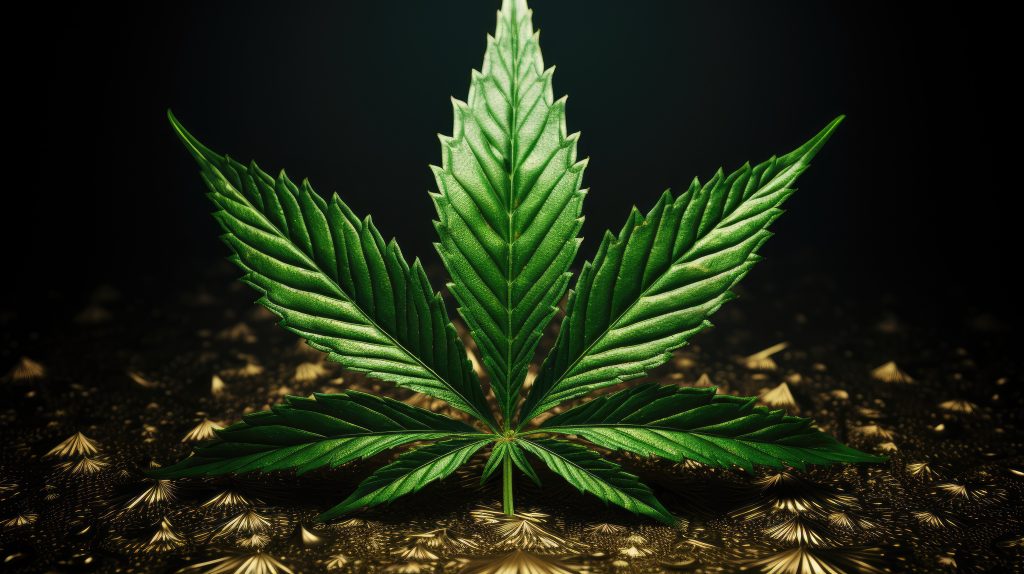
So, What is THCA and What Does That Mean?
THCA, or tetrahydrocannabinolic acid, plays a unique and essential role in the cannabis plant. As the non-psychoactive precursor to THC, THCA offers cannabis users the opportunity to experience the raw benefits of cannabis without the intoxicating effects typically associated with THC. Commonly found in raw cannabis, once exposed to heat, THCA converts into THC, creating the psychoactive effects known in marijuana use.
The difference between THCA and THC goes beyond just psychoactivity. THCA provides flexibility for consumers who want to choose between non-psychoactive and psychoactive experiences depending on how they consume the product. Whether used in its raw form or converted into THC, THCA has become a valuable part of the cannabis industry, appearing in a range of products from tinctures to high-THCA flower.
As THCA’s popularity continues to grow, it’s important to understand the legal landscape surrounding it. While THCA is legal under federal law, its transformation into THC can create a legal gray area in some states. Staying informed about the legal status of THCA and THC is crucial for consumers looking to enjoy this cannabinoid safely and legally.
In summary, THCA may not produce psychoactive effects on its own, but it is an essential part of the cannabis plant’s life cycle. As more people explore the differences between THCA and THC, it’s clear that THCA has a growing role in the cannabis industry’s future.
Is THCA Legal in Florida?
Florida, known as the Sunshine State, has seen significant growth in the cannabis and hemp industries. With an increase in interest surrounding THCA products, many are wondering about their legal status. THCA, a precursor to THC, is non-psychoactive until exposed to heat, where it converts to THC. While THC is heavily regulated, THCA exists in a more complicated legal space, especially in Florida.
Is THCA legal in Florida? This article dives deep into Florida’s laws surrounding THCA, explaining how federal and state regulations impact its legal status. We’ll explore THCA legality, the role of the 2018 Farm Bill, and what you need to know about purchasing, possessing, and using THCA in Florida.
What is THCA?
THCA, or tetrahydrocannabinolic acid, is a cannabinoid found in raw cannabis and hemp plants. Unlike THC, THCA doesn’t have psychoactive effects unless it’s exposed to heat. When smoked, vaped, or cooked, THCA converts into THC, the compound responsible for the “high” associated with cannabis.
Under the 2018 Farm Bill, hemp products, including THCA flower, are federally legal as long as they contain less than 0.3% delta-9 THC by dry weight. This means that hemp-derived THCA flower can be sold and consumed legally across the U.S., as long as it meets the THC content requirements. However, the legal status of smoking or using THCA products varies from state to state, including in Florida.
Understanding THCA’s role as a precursor to THC is key to navigating its legal landscape. Since THCA can convert into THC when heated, its legality in different states often depends on local cannabis regulations.
Federal Laws Regarding THCA
THCA’s legal status at the federal level is largely defined by the 2018 Farm Bill, which legalized hemp and its derivatives. Under this legislation, hemp is defined as any part of the cannabis plant containing less than 0.3% delta-9 THC by dry weight. This includes hemp-derived THCA products, as long as the delta-9 THC content stays within legal limits.
Because THCA itself is non-psychoactive and does not contain high levels of delta-9 THC until it’s exposed to heat, it is generally considered legal under federal law. However, once THCA converts into THC, the psychoactive compound could technically fall under federal regulations for THC products. The 2018 Farm Bill allows the sale and use of hemp-derived products like THCA, provided they meet the legal limit for delta-9 THC.
While THCA products may be federally legal, it’s important to remember that federal law and state law can differ significantly. Just because THCA is legal on the federal level doesn’t guarantee that it’s legal to purchase or use THCA in every state, including Florida.
Hemp and Cannabis Laws in Florida
Florida has a unique relationship with cannabis. The state legalized hemp following the 2018 Farm Bill, allowing for the cultivation and sale of hemp products, including THCA flower, as long as the THC content remains under 0.3% by dry weight. However, Florida’s laws regarding cannabis, particularly marijuana, remain strict outside the medical marijuana program.
Medical cannabis has been legal in Florida since 2016, but recreational cannabis use is still illegal. Patients registered under the state’s medical marijuana program can legally purchase products with higher levels of THC. However, authorities strictly regulate these products, and recreational users cannot access them without a medical card.
When it comes to THCA flower, Florida treats it similarly to other hemp-derived products. As long as the delta-9 THC content remains within legal limits, THCA flower is legal to buy and possess under state law.. However, its use in public or recreational spaces may be subject to local restrictions and confusion over its similarity to marijuana.

Is THCA Legal in Florida?
The legal status of THCA in Florida aligns closely with federal law. Under Florida’s state hemp program, hemp-derived THCA flower is legal as long as it contains less than 0.3% delta-9 THC by dry weight. This means that THCA products meeting this requirement can be legally purchased, sold, and used in Florida.
However, the legal landscape surrounding THCA in Florida can be tricky. While THCA flower is technically legal under state law, law enforcement may not be familiar with its specifics. Because THCA can convert to THC when exposed to heat, there’s a potential legal gray area when it comes to smoking or vaping THCA flower. Authorities may confuse legal THCA flower with marijuana, which could lead to misunderstandings or even legal consequences.
Despite these challenges, Florida’s hemp flower industry continues to grow, with THCA products gaining popularity. As long as the products contain less than 0.3 % delta-9 THC, they remain within the legal framework established by both state and federal law.
Differences Between THCA and THC in Florida Law
Understanding the distinction between THCA and THC is essential when navigating Florida’s cannabis laws. THCA is non-psychoactive in its raw form and is legally classified as a hemp-derived product if it contains less than 0.3% delta-9 THC by dry weight. In contrast, THC is the psychoactive compound in cannabis that causes a high and is strictly regulated under Florida law.
Florida’s medical marijuana program allows patients with qualifying conditions to access THC-rich cannabis products, but recreational use of THC remains illegal. THCA, on the other hand, is legal as long as the product stays within the delta-9 THC limits established under the 2018 Farm Bill and Florida’s state hemp program.
The key difference lies in the conversion of THCA to THC. Once THCA is exposed to heat, such as through smoking or vaping, it converts into THC. Even though THCA flower itself may be legal, law enforcement may not distinguish between THCA flower and illegal marijuana. This potential for confusion makes it important for consumers to understand the legal framework and use THCA products responsibly in Florida.
Potential Legal Risks of Using THCA in Florida
If authorities catch you smoking or possessing THCA flower in public, they may not immediately recognize that the product meets the legal limits for delta-9 THC. This could result in detainment, fines, or other legal actions until lab testing confirms that the product contains less than 0.3% delta-9 THC. To avoid these issues, it’s wise to carry documentation proving the legality of your THCA product, such as certificates of analysis (COAs) from third-party labs.
Additionally, public consumption laws in Florida prohibit smoking or vaping cannabis in certain areas, even if the product is legal. This includes THCA flower, which, when heated, converts to THC. Using THCA in public spaces, especially in non-designated smoking areas, could result in fines or legal trouble.
Understanding these risks and using THCA responsibly can help you avoid potential legal complications in Florida.
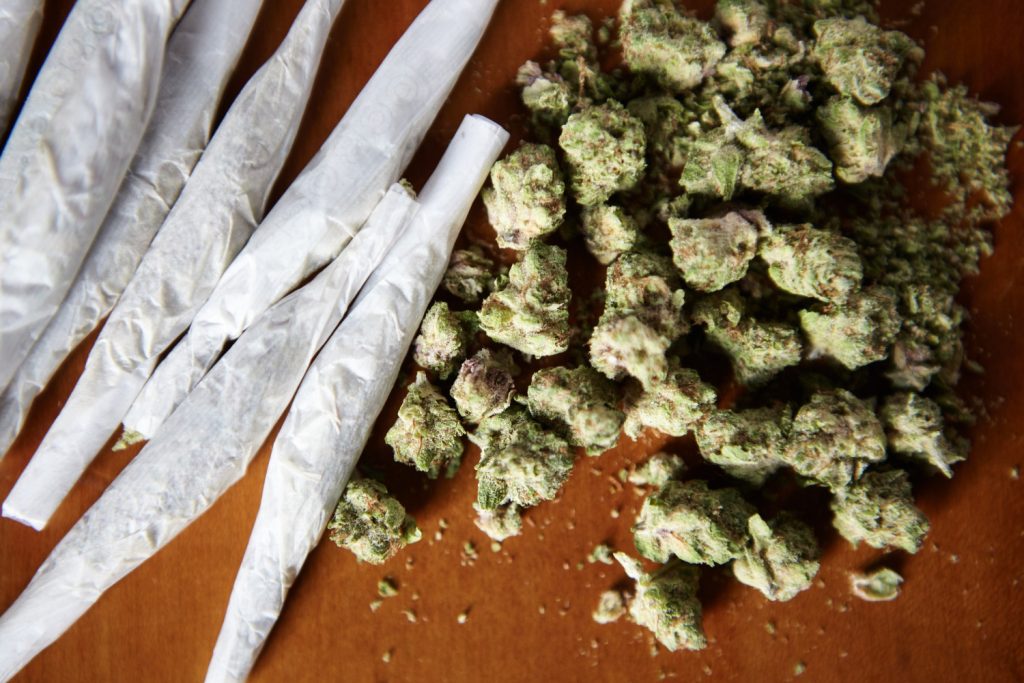
How to Buy THCA Legally in Florida
When buying THCA in Florida, it’s important to ensure that the product meets state and federal legal requirements. The key factor is the product’s delta-9 THC content, which must be less than 0.3% by dry weight. Always purchase THCA products from reputable retailers that provide third-party lab testing to verify the THC concentration.
Look for products that clearly label their THCA content and provide certificates of analysis (COAs). These lab reports confirm the product’s delta-9 THC level is within legal limits and complies with Florida’s hemp laws. Reputable retailers will offer transparency, ensuring that the THCA products you buy are legal and safe.
Another important consideration is the retailer’s standing in the hemp industry. Trustworthy sellers, whether online or in-store, should have a history of compliance with state and federal hemp laws. Always check reviews, certifications, and lab results before making a purchase. This not only ensures legality but also guarantees that you’re getting a high-quality product.
While THCA is legal in Florida, it’s essential to follow the legal guidelines to avoid any issues with law enforcement.
The Future of THCA Laws in Florida
The legal landscape for THCA in Florida is evolving, and future cannabis laws could impact THCA products.
Although THCA flower is legal under state law, future legislation could strengthen or tighten its regulations.
As interest in THCA grows, there’s potential for lawmakers to clarify the legal status of these products. One possibility is the introduction of clearer guidelines around public use and possession limits for THCA flower. This could help reduce confusion for both consumers and law enforcement regarding the differences between THCA and THC.
With ongoing cannabis reform discussions in Florida, the state’s stance on THCA products could change.
If Florida legalizes recreational marijuana, hemp and THCA laws could become more lenient, reducing legal risks.
Anyone interested in THCA flower should stay updated on changes to Florida’s cannabis laws. Staying informed about legislative updates helps consumers understand how legal changes may impact THCA products and their use.
So, Is THCA Legal in the State of Florida?
THCA, derived from hemp, is legal in Florida if it meets state and federal regulations, specifically under 0.3% delta-9 THC. The 2018 Farm Bill and Florida’s state hemp program allows for the sale and use of THCA products. However, while THCA is legal, there are important nuances to consider when purchasing, possessing, and using these products in Florida.
One of the main concerns is the risk of confusion between THCA flower and marijuana, which remains illegal for recreational use in the Sunshine State. Law enforcement may not be familiar with the distinctions between THCA and THC, which could result in potential legal risks for consumers. Carrying certificates of analysis can help prove that your THCA product is within legal limits, reducing the risk of misunderstandings.
The future of THCA laws in Florida remains uncertain but promising. With potential changes to the state’s cannabis laws on the horizon, the legal landscape surrounding THCA could become even clearer in the coming years. Anyone interested in THCA flower and other hemp-derived products must stay informed about these legal developments.
The Best Ways to Use THCA: Tips for Enjoying THCA Effectively
As the cannabis industry evolves, consumers are exploring the best ways to use THCA, a non-psychoactive cannabinoid found in raw cannabis. Unlike THC, which produces psychoactive effects when heated, THCA offers unique benefits without getting you high. Understanding THCA and its various forms is crucial for those seeking alternative experiences. This guide will explore effective ways to consume THCA, including methods that preserve its non-psychoactive nature and maximize its potential benefits.
Understanding THCA
THCA, or tetrahydrocannabinolic acid, is a precursor to THC found in raw cannabis plants. Unlike THC, THCA doesn’t produce psychoactive effects unless heated. When you heat THCA, it converts into THC, which can then get you high. This transformation occurs through a process called decarboxylation. THCA is present in cannabis flower and concentrates like THCA diamonds and THCA isolate. These forms of THCA offer high potency and purity, making them popular among cannabis enthusiasts.
Benefits of THCA
THCA provides several benefits without intoxicating effects. It is often praised for its potential neuroprotective effects and other wellness-related properties. Many consumers prefer THCA products because they offer the raw benefits of the cannabis plant without the psychoactive effects associated with THC. This makes THCA an attractive option for those who want to experience cannabis in its purest form.
Forms of THCA
THCA appears in various forms, including THCA flower, THCA crystals, and THCA concentrates like THCA sand and diamonds. These products contain high levels of THCA and are available in different concentrations. The form of THCA you choose can influence your experience and the method of consumption you prefer. For instance, some people enjoy the smoking experience with THCA flower, while others prefer dabbing THCA concentrates for a more potent effect.
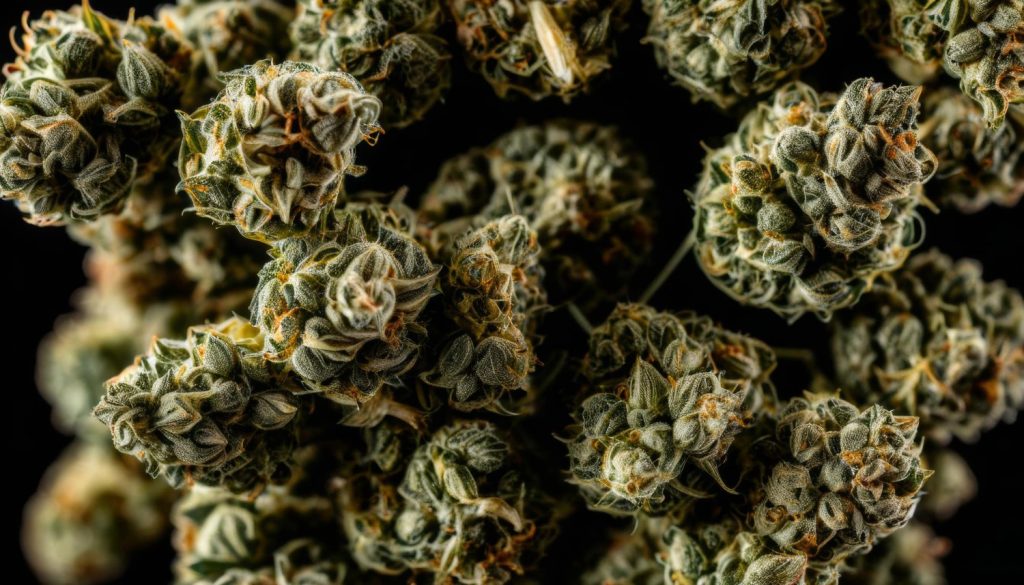
Methods of THCA Consumption
- Raw Consumption
- Extract THCA directly from fresh cannabis buds or leaves.
- Juice raw cannabis or add it to smoothies to enjoy benefits without converting into THC.
- Ideal for those who wish to avoid psychoactive effects.
- Tinctures
- Use liquid extracts for controlled dosing and quick absorption.
- Incorporate alcohol or glycerin-based tinctures into your daily routine.
- Safely consume THCA without smoking or vaping.
- Vaporizing
- Heat THCA at lower temperatures using a vaporizer to prevent conversion into THC.
- Preserve non-psychoactive properties with proper temperature control.
- Edibles
- Create low-temperature edibles like gummies or teas to maintain non-psychoactive properties.
- Ensure cooking temperatures remain low to prevent conversion into THC.
- Topical Applications
- Apply THCA-infused creams and salves directly to the skin for localized relief.
- Benefit from THCA without ingestion or inhalation.
- Capsules and Pills
- Consume THCA in pill form for precise dosing and convenience.
- Discreetly receive pure THCA without unintended psychoactive effects.
Each method allows consumers to tailor their experience based on personal preferences and desired outcomes.
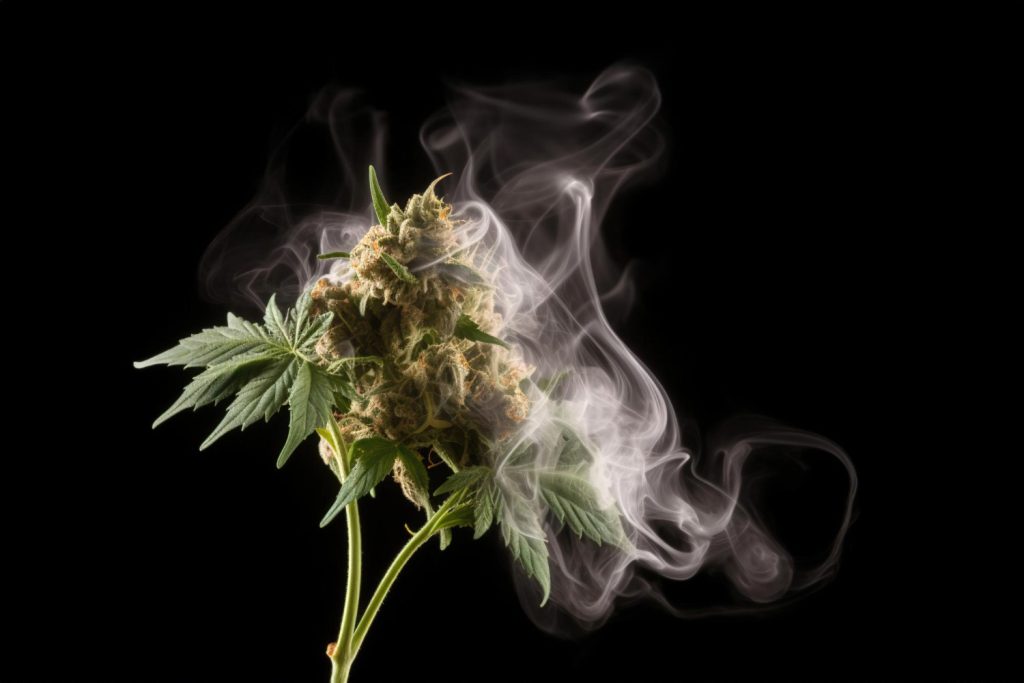
Combining THCA with Other Cannabinoids
Combining THCA with other cannabinoids, such as CBD, can enhance the overall benefits through what is known as the entourage effect. This concept suggests that cannabinoids work better together than individually, potentially increasing their effectiveness. Experimenting with different combinations allows you to discover the most effective way to use THCA for your needs.
Understanding the differences between THCA and THC is crucial for informed consumption. While THCA doesn’t produce psychoactive effects, THC can get you high. Choosing the right products depends on whether you prefer non-psychoactive or intoxicating effects.
Considerations for THCA Consumption
To preserve THCA’s non-psychoactive properties, it’s important to avoid excessive heating. Methods like raw consumption or low-temperature cooking help maintain THCA’s form without converting it into THC. This ensures you experience the benefits of THCA without unintended psychoactive effects.Quality and proper storage are also essential when using THCA products. Purchasing from reputable sources ensures high quality and potency. Additionally, storing THCA products correctly helps maintain their effectiveness and prevents degradation over time.
Selecting the Best Way to Use THCA
In exploring the best ways to use THCA, it’s clear that this cannabinoid offers diverse methods of consumption, each with unique benefits. From raw consumption and tinctures to vaporizing and topical applications, THCA provides options for those seeking non-psychoactive experiences. Understanding how THCA differs from THC is crucial for making informed choices about cannabis products.
By experimenting with different forms and combinations, you can discover the most effective way to incorporate THCA into your routine. Whether you prefer the pure form of THCA crystals or the convenience of capsules, there is a method that suits your lifestyle and preferences. As the cannabis industry continues to innovate, THCA remains a valuable component for those looking to explore the full spectrum of cannabis benefits with or without the psychoactive effects of THC.
Can I legally Order THCA Flower In Pennsylvania?
As THCA products grow in popularity, many people wonder about their legal status in different states. In Pennsylvania, cannabis laws are complex, with consumers asking, “Can I legally order THCA in PA?”. THCA, or tetrahydrocannabinolic acid, is a non-psychoactive compound derived from hemp. While it’s similar to THC, its legal classification can vary based on state and federal laws.
In this article, we’ll explore whether ordering THCA flower in Pennsylvania is legal. By understanding the legal framework, you’ll know how to navigate buying THCA in the state while staying compliant with the law.
What is THCA?
THCA, or tetrahydrocannabinolic acid, is a naturally occurring compound found in raw cannabis. It’s the precursor to THC, the well-known psychoactive cannabinoid. However, unlike THC, THCA doesn’t produce psychoactive effects when consumed in its raw form. This is because the THCA molecule has an extra carboxyl group, which prevents it from binding to CB1 receptors in the brain.
THCA is abundant in hemp flower before it’s exposed to heat. When you heat THCA—through smoking or vaping—it converts into THC, which is responsible for the high associated with cannabis. THCA’s non-psychoactive nature is what allows it to be considered differently under state and federal laws compared to THC.
Understanding this distinction is essential for grasping the legal issues around THCA products, especially in states like Pennsylvania.
Federal Legal Status of THCA
The federal legal status of THCA is based on its connection to the 2018 Farm Bill. This landmark bill legalized hemp and hemp-derived products containing less than 0.3% delta-9 THC on a dry weight basis. Since THCA is a cannabinoid found in hemp, it is not specifically listed as a controlled substance under federal law.
However, the legal landscape gets complicated because THCA can convert into THC when exposed to heat. This transformation can create legal concerns, as THC is federally regulated under the Controlled Substances Act. Despite this, many companies legally sell THCA products under the assumption that they comply with federal law, as long as they are derived from hemp and contain less than 0.3% THC.
Understanding the federal framework is crucial when considering whether THCA products can be legally purchased across state lines, including Pennsylvania.
Pennsylvania Cannabis Laws: An Overview
Pennsylvania has its own set of cannabis laws that impact the legality of THCA. Currently, recreational cannabis is illegal in the state, but medical marijuana is allowed under the state’s Medical Marijuana Program. This means that individuals with a qualifying medical condition can legally purchase cannabis products, including those that contain THC.
When it comes to hemp-derived products like THCA, Pennsylvania follows federal guidelines set by the 2018 Farm Bill. Hemp flower, as long as it contains less than 0.3% delta-9 THC, is legal in the state. THCA flower, since it is derived from hemp and non-psychoactive in its raw form, can also be sold and purchased legally. However, the key factor is ensuring the THC content remains within the legal threshold.
Understanding Pennsylvania’s cannabis laws will help you make an informed decision about ordering THCA products.
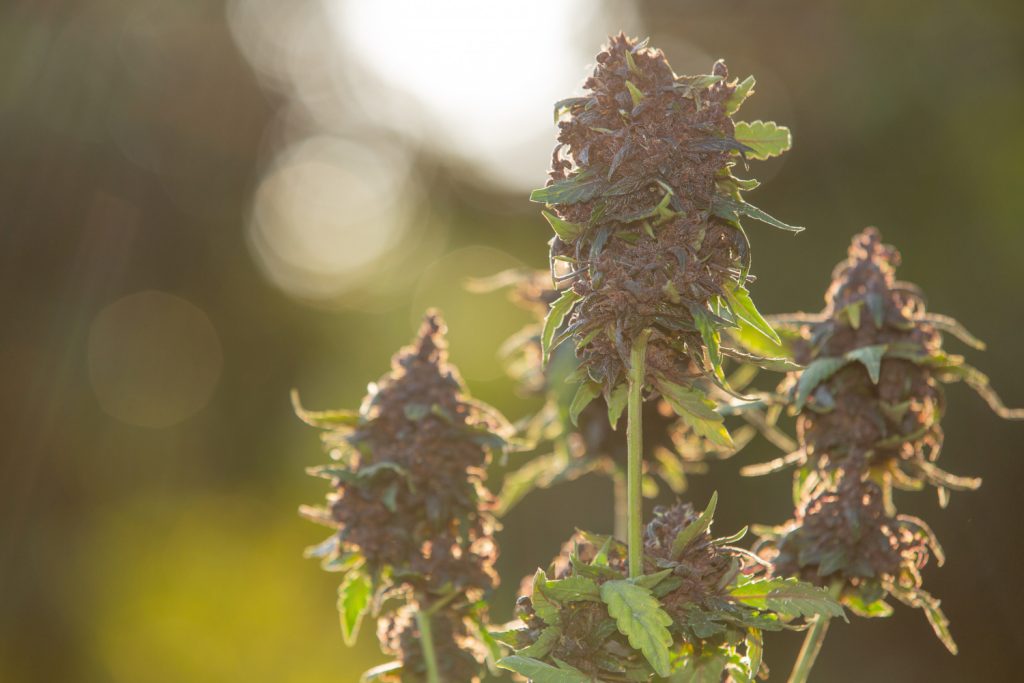
Can You Legally Order THCA in PA?
Now that we’ve covered the basics of both federal and state laws, let’s answer the key question: Can you legally order THCA in Pennsylvania? The short answer is yes, but there are important details to consider. THCA flower that is derived from hemp and contains less than 0.3% delta-9 THC on a dry weight basis can be legally ordered and sold in Pennsylvania.
However, there are some legal gray areas. If the THCA converts into THC during the shipping process due to heat exposure, the product could potentially exceed the legal THC threshold. This makes it crucial to order THCA from reputable vendors who comply with both state and federal regulations. Additionally, online orders are legal as long as the products meet Pennsylvania’s legal requirements for hemp-derived products.
While THCA products are generally considered legal in Pennsylvania, it’s essential to stay informed about changes in the state’s cannabis laws, as they can impact what is sold and shipped legally.
Ensuring Compliance When Legally Buying THCA in Pennsylvania
When purchasing THCA in Pennsylvania, it’s important to ensure that the products you buy meet the legal standards for hemp-derived products. Here are a few steps you can take to stay within the legal framework:
- Verify THC Content: Always check that the product contains less than 0.3% delta-9 THC, as required by both federal and Pennsylvania state law.
- Buy from Reputable Sellers: Ensure that the seller provides lab-tested results, showing compliance with THC limits. Lab reports should indicate THC content on a dry weight basis.
- Proper Labeling: Make sure the product is clearly labeled as hemp-derived. This is especially important for THCA flower, which can look similar to cannabis strains with high THC levels.
- Understand the Risks of Conversion: Be aware that heat exposure can convert THCA into THC, which could lead to higher THC content than legally allowed.
By following these steps, you can confidently order THCA flower in Pennsylvania while staying compliant with the law.
What Are the Risks of Ordering THCA in Pennsylvania?
While ordering THCA in Pennsylvania is generally legal, there are some risks involved. One of the biggest concerns is the potential for accidental decarboxylation. If THCA is exposed to heat during shipping or storage, it can convert into THC, increasing the THC content beyond the legal limit of 0.3%. This could cause issues if the product no longer qualifies as a legal hemp-derived product.
Another risk comes from inconsistent labeling or testing. Some vendors may not provide accurate lab results, meaning you could unknowingly purchase a product with higher THC levels than allowed under Pennsylvania law. Always ensure that you buy from trusted sellers who provide third-party lab testing.
Lastly, it’s important to keep in mind that cannabis laws are constantly evolving. What is legal today may change in the future, so staying updated on both federal and state regulations is crucial.
By being aware of these risks, you can make informed choices when ordering THCA flower in Pennsylvania.
Conclusion
The question, “Can you legally order THCA in Pennsylvania?”, has a clear but nuanced answer. Yes, THCA flower and other hemp-derived products can be legally ordered in Pennsylvania as long as they comply with federal and state regulations. The key is ensuring the product contains less than 0.3% delta-9 THC and is properly labeled as hemp-derived.
While THCA is legal in its raw form, it’s crucial to be aware of the risks associated with the potential conversion to THC. Always purchase from reputable sellers who provide accurate lab reports to stay within the legal boundaries. Finally, it’s essential to stay informed about any changes in cannabis laws at both the state and federal levels, as they can affect the legal status of THCA.
By understanding the legal framework and taking the necessary precautions, Pennsylvania residents can safely and legally purchase THCA products.
How Long Does THCA Stay In Your System?
As more people explore cannabis products, understanding how they interact with the body becomes essential. THCA, or tetrahydrocannabinolic acid, is a non-psychoactive compound found in raw cannabis. But how long does THCA stay in your system?
Whether you’re curious about THCA retention or concerned about drug testing, knowing the basics can help you stay informed. In this article, we’ll explore how long THCA remains in the body, how it affects drug tests, and key factors that influence its detection.
What is THCA?
THCA, or tetrahydrocannabinolic acid, is a cannabinoid found in raw cannabis. Unlike THC, THCA does not produce psychoactive effects. When cannabis is heated, through smoking or vaping, THCA transforms into THC, the compound responsible for the “high.” This conversion happens during a process called decarboxylation, where THCA loses its acid group. THCA can be consumed in its raw form, such as through THCA tinctures or THCA gummies, offering potential benefits without causing intoxication.
How Does THCA Interact with the Body?
When you consume THCA, it interacts with the body through the endocannabinoid system. This system helps regulate processes like mood, pain, and appetite. Unlike THC, THCA doesn’t bind directly to cannabinoid receptors, which is why it doesn’t produce a high. Instead, THCA is absorbed into the bloodstream and metabolized. It can be stored in fat cells, similar to other cannabinoids. Since THCA doesn’t undergo immediate conversion to THC in the body, its effects remain non-psychoactive unless heated.
How Long Will THCA Stay in Your System?
The length of time THCA stays in your system varies depending on several factors. Unlike THC, THCA is non-psychoactive and may remain in the body differently. Factors like metabolism of THCA, body fat percentage, and how often you consume THCA products can affect how long it stays in your system. People who consume THCA regularly may have it in their bodies longer, as cannabinoids are stored in fat cells. On average, cannabinoids can stay in the system for a few days to several weeks.
Does THCA Show Up on a Drug Test?
Most drug screenings do not specifically detect THCA but focus on detecting THC and its metabolites. However, under certain conditions, THCA can convert into THC, which may show up on a drug test. Here’s what you need to know about standard drug tests:
- Urine drug test: The most common test looks for THC metabolites rather than THCA itself. This test may detect THCA in the body for days or weeks.
- Blood testing: Blood tests have shorter detection windows, usually a few hours to a day.
- Hair tests: These tests can detect THC use for up to 90 days but are less likely for THCA detection.
- Saliva tests: These are primarily used for THC detection within a short period, typically a few hours to two days.
THCA may not always cause a positive test result, but it will definitely show as THC if you decarboxylate it before consumption.
Can You Speed Up THCA Elimination?
If you’re facing a drug test and concerned about THCA staying in your system, you might wonder if it’s possible to speed up its elimination. While there are no guaranteed methods to quickly remove cannabinoids like THCA from your body. Certain lifestyle changes and habits can potentially help reduce the time it takes for THCA to leave your system. Here are some common strategies people use to try and speed up the process:
- Stay hydrated: Drinking plenty of water is a common method people use to flush out toxins, including cannabinoids. Staying hydrated supports your body’s natural detoxification processes and may help reduce the concentration of THC metabolites in your system. However, it won’t dramatically shorten the detection window, especially if you consume THCA regularly.
- Exercise regularly: Regular exercise may help burn fat and potentially reduce THCA retention time since the body stores cannabinoids like THCA in fat cells.Activities like cardio and strength training can help break down fat cells, allowing the body to release stored cannabinoids into the bloodstream for eventual elimination. However, it’s important to note that exercise may temporarily increase THC levels in the blood as fat cells break down, which could affect test results if done too close to the test date.
- Eat a healthy diet: Consuming a diet rich in fiber and antioxidants can support the body’s detoxification systems. Foods like fruits, vegetables, whole grains, and lean proteins help maintain a healthy metabolism and assist with the elimination of toxins. High-fiber foods, in particular, aid digestion and can help the body remove waste products more efficiently.
- Consider detox kits with caution: Many companies market detox kits and supplements as quick ways to cleanse the body of THC and THCA. Some people report success with these products, but scientific evidence doesn’t support their effectiveness. Use detox products cautiously, as results depend on individual metabolism and the type of drug test you take.
- Sweating it out: Some believe that using saunas or engaging in activities that make you sweat can help remove toxins through the skin. While sweating is part of the body’s detox process, its impact on removing cannabinoids from the system is likely minimal. Most cannabinoids are eliminated through urine and feces, rather than sweat.
- Avoid further consumption: This may seem obvious, but one of the most effective ways to reduce the chance of THCA being detected is to stop consuming it as soon as possible before a test. Giving your body more time to eliminate existing cannabinoids can significantly reduce the likelihood of a positive test result.
While these strategies may help support the body’s natural detox processes, they won’t provide instant results. The time THCA stays in your system largely depends on factors like frequency of use, body fat percentage, metabolism and overall health. The best way to pass a drug test is to allow ample time for your body to naturally eliminate the cannabinoids.
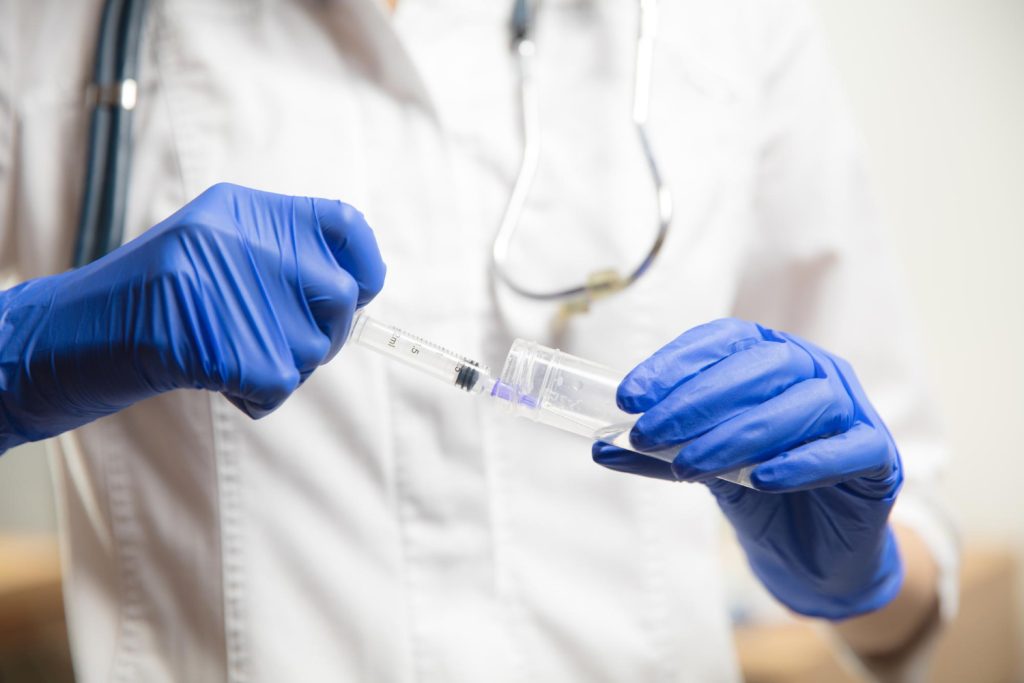
What You Should Know If You’re Facing a Drug Test
If you’re concerned about passing a drug test while using THCA products, there are several important things to keep in mind. While THCA is non-psychoactive, it can still potentially show up on certain drug tests after converting into THC. Understanding how these tests work and what they are looking for is essential.
Understanding Drug Screening Methods
Urine tests are the most common type of drug screening. In these tests, labs look for THC metabolites rather than THCA specifically. These metabolites can remain in your system for weeks after consumption, depending on how frequently you use THCA products. For those who consume THCA occasionally, the detection window is usually shorter, but regular users may still test positive for up to 30 days or more.
Factors That Affect How Long THCA Stays in Your System
Several factors can influence how long THCA stays in your system and whether it shows up on a drug test. Your metabolism plays a significant role in how quickly your body processes cannabinoids like THCA. Individuals with a faster metabolism tend to eliminate cannabinoids more quickly, reducing the detection window.
Body fat percentage also affects how long THCA stays in your system. The body stores THCA in fat cells, so individuals with higher body fat percentages may retain it for longer periods. Exercise can help release stored cannabinoids, but it won’t immediately clear them from your system.
Additionally, the method of consumption can affect THCA retention. Smoking THCA flower, using THCA tinctures, or consuming THCA gummies all interact with the body differently. For instance, consuming THCA orally typically involves a longer processing time through the digestive system compared to inhalation methods, which may lead to a longer detection window.
Legal Considerations for THCA Users
If you live in a state where THCA products are legal, you may still face challenges with drug tests, especially if your employer has a zero-tolerance policy for cannabis use. Even though THCA is a non-psychoactive compound, a positive test result for THC metabolites can still occur, which could lead to potential legal or employment consequences.
For those who use hemp-derived THCA smokable products, it’s important to stay informed about local cannabis laws and testing policies in your area. Employers and law enforcement often do not distinguish between different cannabinoids, so taking proactive measures to understand the risks is critical.
How Long Does THCA Stay in Your System: A Quick Summary
Various factors influence how long THCA stays in your system, and it varies from person to person. While THCA itself is not usually the target of standard drug tests, the conversion of THCA into THC can still lead to a positive result. The following factors play a major role in how long THCA or its metabolites remain detectable:
- Frequency of Use: Regular consumers of THCA products are likely to have it in their system for a longer period. Occasional users, on the other hand, may clear it faster, typically within a few days.
- Body Composition: Individuals with higher body fat percentages may retain THCA and THC metabolites longer because cannabinoids are stored in fat cells. A leaner individual may eliminate THCA faster.
- Metabolism: A faster metabolism will process cannabinoids more quickly, leading to a shorter detection window. Those with slower metabolisms may experience prolonged retention of THCA in their bodies.
- Method of Consumption: The way you consume THCA matters. For example, smoking THCA flower might clear from the system quicker than consuming THCA tinctures or edibles. These can stay in the system longer due to their processing through the digestive system.
- Type of Drug Test: Different drug tests have varying detection windows. Urine tests, the most common, may detect THC metabolites for weeks. Blood tests have shorter windows, while hair tests can detect THC for up to 90 days.
There is no exact formula for determining how long THCA stays in your body. But understanding these factors can give you a clearer picture.
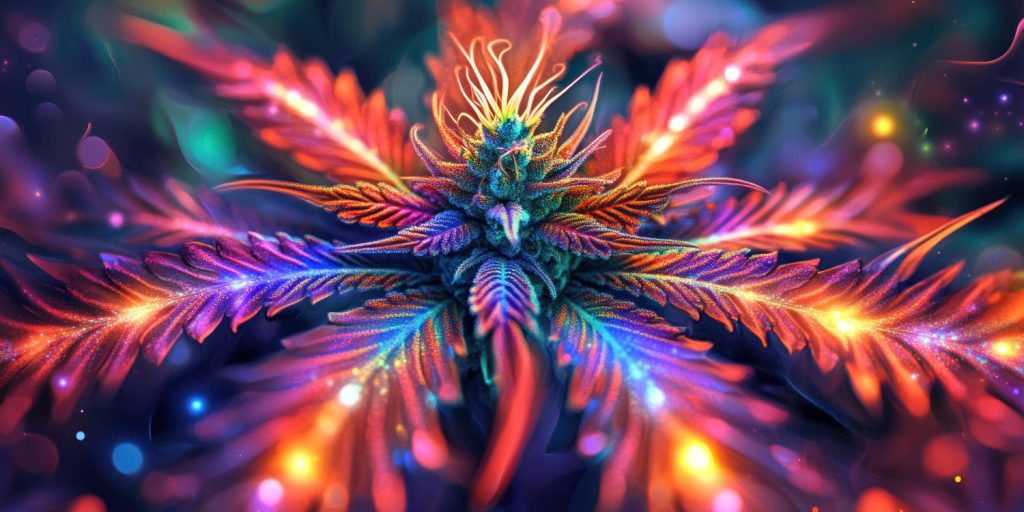
Understanding How Long THCA Will Stay In Your System
Understanding how long THCA stays in your system is crucial for anyone using THCA products. While THCA itself is non-psychoactive, its conversion into THC can still lead to a positive drug test result. The amount of time THCA stays in the body varies depending on metabolism, body fat percentage and frequency of use. Drug testing methods also play a significant role, with urine tests being the most likely to reveal THC metabolites.
If you’re consuming THCA and concerned about an upcoming test, consider your body’s natural detox process. Staying hydrated, exercising, and maintaining a healthy diet can support elimination, but time is ultimately the best solution. Understanding how different methods of THCA consumption, like smoking or ingesting, affect retention can help you make informed decisions.
Whether you’re a casual or frequent consumer of THCA products; Knowing how it interacts with your body and the risks involved with drug testing is key to responsible cannabis use.
Best THCA Concentrates – Explore Live Resins, Isolates and More!
THCA concentrates are blowing up in the cannabis scene, and it’s easy to see why. Whether you’re after flavor or high potency, these concentrates offer a unique experience compared to traditional cannabis flower. THCA, short for tetrahydrocannabinolic acid, is a non-psychoactive compound found in cannabis plants. But once you apply heat, known as decarboxylation, THCA turns into THC, the psychoactive compound that gives you that familiar high.
With so many THCA concentrates available, finding the best one can feel overwhelming. But don’t sweat it—we’re here to break it down and help you discover the perfect high-quality concentrate for your next dab.
What is THCA?
THCA, or tetrahydrocannabinolic acid, is the precursor to THC, the psychoactive compound in cannabis that most people are familiar with. It’s found in raw cannabis and hemp plants. When you heat THCA—through smoking, vaping, or dabbing—it turns into THC in a process called decarboxylation.
Since THCA itself isn’t psychoactive, you won’t feel the usual “high” unless it’s heated. This makes it perfect for those who want the benefits of cannabis without the immediate psychoactive effects, especially in high levels of THCA concentrates. Whether it’s in THCA flower or concentrates, this compound is essential for an enjoyable cannabis experience.
Types of THCA Concentrates
There’s a wide range of THCA concentrates available, each offering a unique experience. Whether you’re after a potent dab or a flavorful experience, there’s something for everyone.
- Live Resin: Known for its rich terpene profile and fresh flavor, live resin is extracted from flash-frozen cannabis plants. It captures the aroma and flavor better than other concentrates, offering a full-spectrum experience. THCA live resin also boasts some of the highest levels of THCA, making it a top-tier choice for those looking for high-quality cannabis products.
- THCA Isolate: For those seeking pure THCA without the extra flavors or cannabinoids, THCA isolate is the way to go. This highly potent concentrate comes in crystalline form, offering a clean, powerful experience. You can dab it, mix it with other concentrates, or sprinkle it on THCA flower for an extra kick.
- THCA Diamonds: THCA diamonds are exactly what they sound like—crystalline formations of pure THCA. Known for their high potency and clean flavor, these diamonds are perfect for experienced users looking for a powerful dab. Often combined with terp sauce, they deliver a potent and flavorful hit when vaporized.
- THCA Crumble: Crumble is a versatile concentrate with a soft, crumbly texture that makes it easy to handle. It’s ideal for dabbing or sprinkling on top of a bowl or joint. If you’re new to concentrates, crumble is a good place to start because it’s user-friendly and still offers high potency.
- THCA Sauce: THCA sauce is rich in both cannabinoids and terpenes, giving it a unique, saucy texture. Known for its bold flavor and smooth dabbing experience, THCA sauce is often combined with diamonds for a full-spectrum effect. It’s perfect for those looking to enjoy a more flavorful dab.
- THCA Shatter: Shatter is one of the most stable forms of THCA concentrates, with a glass-like consistency. It’s easy to store and handle, making it a favorite among dabbers who want a long-lasting concentrate. Its high potency and clean flavor make shatter a classic option for many cannabis enthusiasts.

How to Use THCA Concentrates
Dabbing is the most popular way to enjoy THCA concentrates. You’ll need a dab rig, a torch, and a dab tool to get started. The key is to heat your dab rig to the right temperature so you can vaporize the concentrate without burning it. Vaporizing the concentrate at lower temperatures helps preserve the terpene profile, giving you a more flavorful experience.
If you’re not into dabbing, don’t worry—you can also vaporize THCA concentrates using a specialized vaporizer. Many users prefer this method because it’s more portable and doesn’t require a torch. You can even add THCA concentrates like crumble or isolate to joints or bowls for an extra kick.
No matter your method, THCA concentrates can produce a potent and flavorful experience. Just start with a small amount and work your way up to find what works best for you.
Choosing the Best THCA Dabs for You
When it comes to choosing the best THCA concentrate, it all depends on what you’re looking for. If you’re after flavor, live resin or THCA sauce are top-tier options because of their rich terpene content. These concentrates offer a full-spectrum experience, making every dab a flavorful ride.
For those who prioritize potency, THCA diamonds or isolate might be your best bet. These concentrates contain high levels of THCA and offer a more intense experience when vaporized or dabbed.
Beginners might want to start with something easier to handle, like crumble or shatter. These concentrates are more user-friendly and still pack a punch. No matter what you choose, always start with a small amount to gauge your tolerance, especially with highly potent THCA concentrates.
If you’re shopping for THCA concentrates online, make sure you’re buying from a reliable source. High-quality concentrates offer the best experience, so look for products with good reviews and a commitment to quality and potency.

Storing and Handling THCA
Proper storage is essential for maintaining the quality and potency of your THCA concentrates. Here’s how you can ensure your concentrates stay fresh.
Airtight Containers for Freshness
Always store your THCA concentrates in airtight containers. Exposure to air can degrade the cannabinoids and terpenes, impacting both the flavor and potency. Use containers made of glass or silicone for the best results.
Keep It Cool and Dark
Heat and light can break down THCA and reduce its effectiveness. Store your concentrates in a cool, dark place to maintain their quality. If possible, keep them in the fridge to extend their shelf life, especially for live resin and THCA sauce, which are more sensitive to temperature changes.
Avoid Handling with Bare Hands
THCA concentrates like shatter, diamonds, and crumble can be sticky or fragile. Always use a dab tool to handle them, as oils from your skin can affect their consistency. Proper handling ensures you get the best out of your product each time.
By following these simple storage tips, you’ll keep your THCA concentrates in prime condition for your next dab session.
The Appeal of THCA Concentrates
THCA concentrates are becoming a popular choice among cannabis enthusiasts for good reason. They offer a unique combination of potency, flavor, and versatility that makes them stand out from traditional cannabis flower.
Potent and Flavorful Experience
THCA concentrates provide a high potency level compared to other forms of cannabis. Whether you’re dabbing live resin or vaporizing THCA diamonds, these concentrates offer a strong and flavorful experience with just a small amount. The rich terpene profiles found in sauce or live resin give users an aromatic and full-spectrum experience that flower alone can’t match.
Versatility in Consumption Methods
THCA concentrates are highly versatile when it comes to consumption. You can dab them, vaporize them, or even sprinkle them on top of your joints or bowls for an extra punch. Whether you prefer live rosin, crumble, or shatter, the variety of forms allows users to enjoy their THCA in different ways.
A Clean and Efficient Option
For those who want a cleaner option, concentrates like THCA isolate and shatter are solvent-free, meaning they’re made without harsh chemicals. This makes them a premium choice for users who want a top-tier experience without compromising quality.
Overview of THCA Concentrates
THCA concentrates offer a potent and flavorful way to enjoy cannabis, with a wide range of options available for every preference. Whether you’re after the rich terpene profile of live resin, the pure power of THCA diamonds, or the versatility of crumble, there’s a THCA concentrate that suits your needs.
Remember to consider your experience level and personal taste when choosing the best THCA concentrate for you. Start with a small amount, especially with high-potency options like diamonds or isolate. And don’t forget to store your concentrates properly to maintain their quality over time.
With so many high-quality concentrates available, exploring the world of THCA is a fun and rewarding journey. So, take your time, try out different forms, and discover what gives you the best cannabis experience.
What is the difference between THC and THCA?
With the growing popularity of cannabis products, the difference between THC and THCA has become a hot topic. While both compounds are found in cannabis flower, they have distinct properties and effects. Understanding how THCA, the non-psychoactive precursor to THC, transforms into THC is essential for anyone curious about cannabis.
This article will explain the difference between THC and THCA, including their chemical structures, effects, and legal status. By the end, you’ll know exactly how these cannabinoids differ and how they impact cannabis products.
What is THC?
THC, or tetrahydrocannabinol, stands as the primary psychoactive compound in marijuana. When people talk about cannabis getting you high, they’re referring to THC. This cannabinoid binds directly to the CB1 receptors in the brain, which are part of the endocannabinoid system. By interacting with these receptors, THC alters your mood, changes how you perceive the world, and often stimulates your appetite.
When you smoke, vape, or ingest cannabis, THC enters your bloodstream and quickly travels to the brain. This rapid absorption creates the immediate effects associated with cannabis use, including euphoria, relaxation, and sometimes heightened sensory experiences. The higher the THC content in the strain, the stronger the psychoactive effects.
Recreational users often seek strains with high THC percentages to maximize these effects. Meanwhile, THC also plays a significant role in the medical marijuana industry, though its psychoactive nature requires careful consideration when choosing the right strain for specific purposes. THC’s classification as a Schedule I substance under federal law complicates its legality, making it essential for users to understand both state and federal regulations.
What is THCA?
THCA, or tetrahydrocannabinolic acid, is the raw, non-psychoactive precursor to THC. When cannabis plants grow, they produce THCA rather than THC. As long as the plant remains unheated, the THCA stays intact, offering a different experience from its psychoactive cousin. This is why raw cannabis, even when consumed in large amounts, won’t get you high.
THCA’s structure contains an extra carboxyl group, which prevents it from binding to CB1 receptors in the brain. Without this interaction, psychoactive effects simply don’t occur. When people consume THCA in its raw form—by juicing cannabis leaves, eating raw cannabis, or using cold extraction methods—they avoid the “high” associated with THC.
But when THCA is exposed to heat—through smoking, vaping, or even baking—decarboxylation happens. This chemical reaction removes the carboxyl group from THCA, transforming it into THC. This conversion process allows THCA to produce psychoactive effects when consumed after heating. The potential benefits of THCA products in their raw form have gained attention in recent years, particularly for those interested in non-intoxicating cannabinoids.
While THCA doesn’t produce psychoactive effects, it still plays a crucial role in the cannabis plant’s overall profile. People often seek strains with high THCA content, knowing it can be converted into THC when needed.
Chemical Differences Between THC and THCA
Although THC and THCA are closely related, their chemical structures set them apart in important ways. THCA molecules include an additional carboxyl group, which makes THCA a non-psychoactive cannabinoid. This carboxyl group acts as a barrier that prevents THCA from interacting with CB1 receptors in the brain, meaning it doesn’t cause any psychoactive effects.
However, when you expose THCA to heat—whether by smoking, vaping, or cooking—the decarboxylation process kicks in. This process removes the carboxyl group from THCA, transforming it into THC. Once this conversion occurs, THC can now interact with CB1 receptors, producing the psychoactive effects cannabis users typically seek. Without this transformation, THCA remains inactive and non-intoxicating, which is why consuming raw cannabis won’t get you high.
Another interesting difference between these cannabinoids lies in their natural state. While THC is rarely found in freshly harvested cannabis, THCA is abundant in raw cannabis flowers. As long as the cannabis remains unheated, it will preserve its high THCA content. For people who want to avoid the “high” of THC, THCA in its raw form offers a safe alternative.
Understanding how these cannabinoids differ at a chemical level helps consumers make more informed choices. If you want the psychoactive effects of THC, decarboxylation is key. But if you’re looking to avoid intoxication, THCA in its raw form might be the better option.
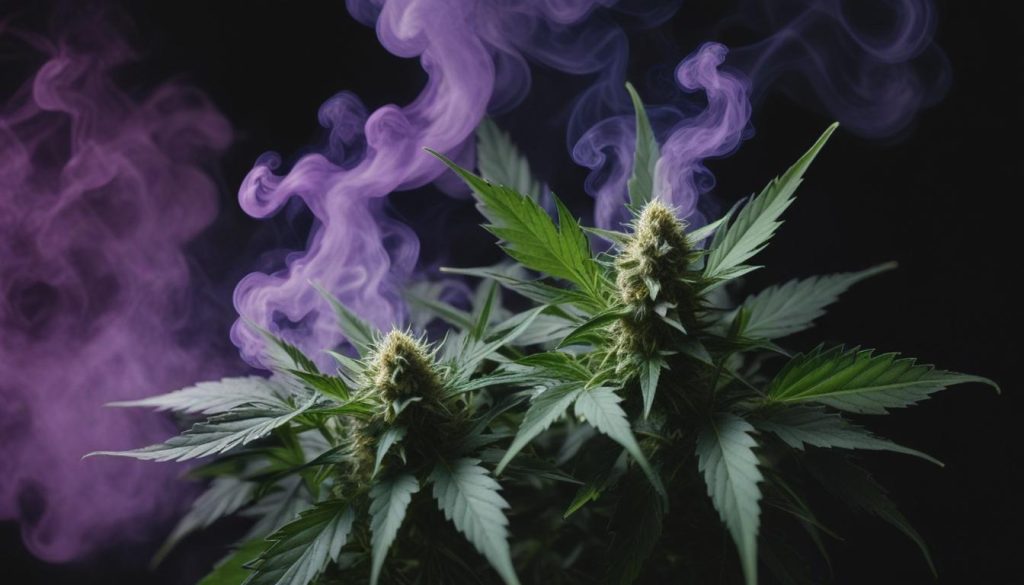
The Effects of THC vs. THCA
THC and THCA differ significantly in the effects they produce. THC is well-known for its psychoactive properties. When you consume THC, whether through smoking, vaping, or edibles, it interacts with CB1 receptors in the brain. These interactions lead to feelings of euphoria, relaxation, and altered perception, often referred to as the “high” that cannabis users seek.
People who consume high-THC strains often report heightened sensory experiences, increased appetite, and changes in mood. For recreational users, these effects make THC a popular choice. However, THC’s psychoactive nature can also lead to side effects like anxiety or paranoia in some individuals, especially when consumed in high doses.
On the other hand, THCA doesn’t produce these psychoactive effects. THCA in raw form won’t make you feel high. It does not interact with CB1 receptors in the same way. Instead, people consume THCA for its non-intoxicating potential. Some choose to add raw cannabis leaves or THCA products to their diet, including smoothies, juices, or even salads.
It’s important to remember that heating THCA turns it into THC, which leads to psychoactive effects. As soon as decarboxylation occurs, THCA converts into THC, and you’ll experience the intoxicating effects associated with the latter. So, if you’re seeking a “high,” you’ll want THC. But if you’re looking for the benefits of cannabis without intoxication, consuming raw THCA products is the way to go.
Methods of Consuming THC and THCA
When it comes to consuming THC, the most common methods involve heating cannabis to activate its psychoactive properties. Smoking and vaping are two of the quickest ways to enjoy THC. By applying heat, these methods instantly convert THCA into THC through the decarboxylation process, allowing users to experience the effects almost immediately. THC can also be consumed through edibles, such as brownies, gummies, or drinks. These products are infused with THC that has already been activated, so no additional heat is required.
For those who prefer the effects of THCA, the approach to consumption differs. THCA is commonly consumed in its raw form, which allows users to experience the potential benefits of the cannabinoid without getting high. Some enthusiasts add raw cannabis leaves or flowers to smoothies, salads, or juices. This method of consumption preserves the THCA without converting it into THC. You can also find THCA in concentrated forms, such as tinctures or crystalline, making it easy to add THCA to your daily routine without any psychoactive effects.
One key consideration when consuming THCA is avoiding heat. If you inadvertently apply heat, through cooking or vaping, for example, the THCA will convert to THC. That’s why it’s crucial to choose consumption methods carefully based on the experience you want—psychoactive effects from THC or non-intoxicating benefits from THCA. Both cannabinoids offer unique experiences, so it’s all about picking the method that aligns with your goals.
Legal Differences Between THC and THCA
The legal status of THC and THCA varies greatly, largely due to their psychoactive differences. THC is classified as a Schedule I controlled substance under the Controlled Substances Act, making it illegal at the federal level. However, many states have legalized THC for medical or recreational use, which creates a confusing legal landscape. In states that have embraced cannabis legalization, individuals can purchase THC products as long as they meet state regulations. This means that while THC remains federally illegal, state laws determine whether people can legally buy and use it.
THCA, on the other hand, exists in a legal gray area. Under the 2018 Farm Bill, hemp-derived products containing less than 0.3% delta-9 THC are legal at the federal level. Because THCA in its raw form is non-psychoactive, it is often considered legal under this bill, as long as it meets the required THC content limits. However, legal risks arise when THCA undergoes decarboxylation and converts into THC, potentially exceeding the legal threshold for delta-9 THC content.
In states where cannabis is still illegal, THCA’s legality can also come into question, especially if local law enforcement interprets the presence of THCA as a precursor to an illegal substance. To navigate this legal maze, consumers must stay informed about both state and federal regulations. Buying products from reputable sources that provide clear lab testing results ensures compliance with the law and helps avoid legal issues related to THC content. As cannabis laws continue to evolve, staying updated on legal changes is crucial for anyone interested in THC or THCA products.
THC and THCA in Drug Testing
Drug testing for cannabis typically focuses on detecting THC and its metabolites in the body. When you consume THC, it breaks down into metabolites, which can linger in your system for days or even weeks. Most standard drug tests, including urine, saliva, and hair follicle tests, are designed to detect these metabolites. This makes it easy for regular cannabis users to test positive, even long after the psychoactive effects of THC have worn off.
THCA, in its raw form, usually doesn’t trigger a positive result on standard drug tests. Since THCA does not convert into THC without heat, consuming raw THCA products, such as fresh cannabis or THCA concentrates, typically won’t show up on a test for THC metabolites. However, there’s always a risk. If any THCA converts into THC during processing, shipping, or storage, trace amounts of THC could appear in your system and lead to a positive test result. Even a small amount of THC in a product could cause issues for individuals who undergo frequent drug testing.
Choose THCA products carefully, and ensure proper testing and labeling to avoid unintended THC consumption. If you’re subject to drug testing, sticking to reputable sources with transparent lab results is the best way to minimize the risk. Still, if drug testing is a concern, you may want to avoid all cannabis products, even those marketed as containing only THCA.
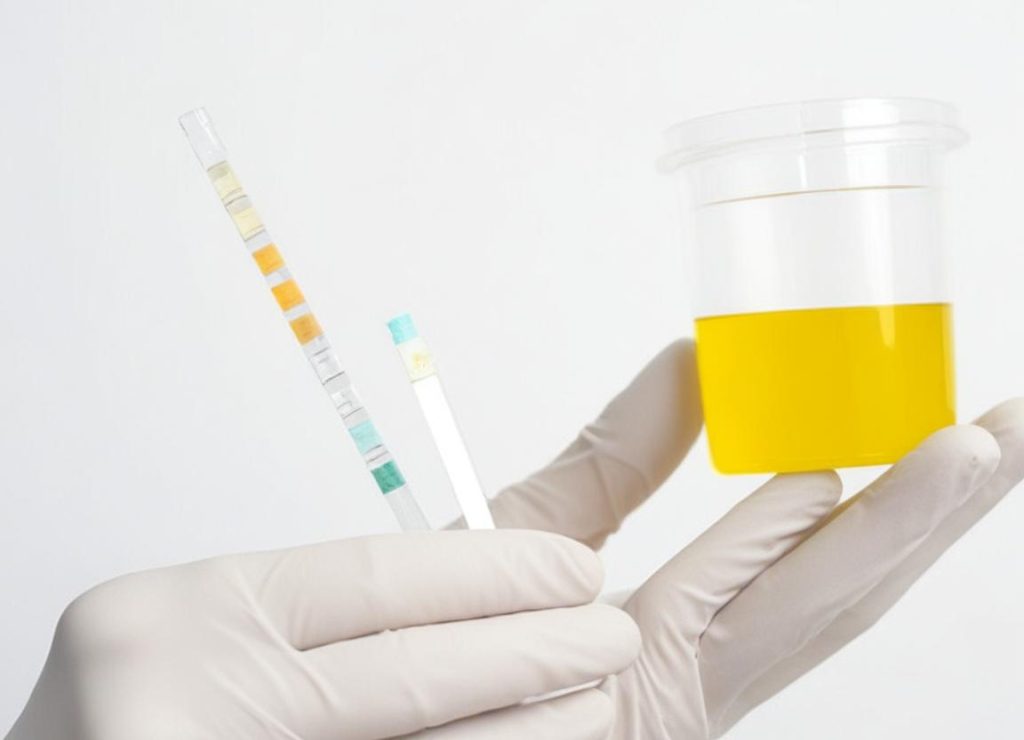
THC and THCA in Drug Testing
Drug testing for cannabis typically focuses on detecting THC and its metabolites in the body. When you consume THC, it breaks down into metabolites, which can linger in your system for days or even weeks. Most standard drug tests, including urine, saliva, and hair follicle tests, are designed to detect these metabolites. This makes it easy for regular cannabis users to test positive, even long after the psychoactive effects of THC have worn off.
THCA, in its raw form, usually doesn’t trigger a positive result on standard drug tests. Since THCA does not convert into THC without heat, consuming raw THCA products, such as fresh cannabis or THCA concentrates, typically won’t show up on a test for THC metabolites. However, there’s always a risk. If any THCA converts into THC during processing, shipping, or storage, trace amounts of THC could appear in your system and lead to a positive test result. Even a small amount of THC in a product could cause issues for individuals who undergo frequent drug testing.
It’s important to choose THCA products carefully and ensure they have been properly tested and labeled to avoid any unintended THC consumption. If you’re subject to drug testing, sticking to reputable sources with transparent lab results is the best way to minimize the risk. Still, if drug testing is a concern, you may want to avoid all cannabis products, even those marketed as containing only THCA.
Conclusion
THC and THCA, though closely related, offer vastly different experiences to cannabis consumers. THC is the well-known psychoactive compound responsible for marijuana’s intoxicating effects, while THCA remains non-psychoactive unless exposed to heat. Understanding how THCA converts into THC through decarboxylation helps clarify why raw cannabis won’t get you high, but smoking or vaping will.
From a legal perspective, THC faces more restrictions, as it is classified as a controlled substance under federal law. THCA, on the other hand, benefits from more lenient regulations under the 2018 Farm Bill, as long as it adheres to THC content limits. However, legal risks arise when THCA converts to THC, which is why it’s essential to stay informed about both state and federal laws regarding cannabis products.
Both THC and THCA offer unique benefits, making them appealing to different types of cannabis users. If you seek the psychoactive effects of cannabis, THC-rich products are the way to go. But if you’re more interested in cannabis without the high, raw THCA offers an alternative worth exploring. Ultimately, understanding the difference between these two cannabinoids empowers you to make informed decisions when navigating the ever-evolving cannabis market.


